MOORE MATTERS
MOORE.EDU.AU

Cover image: Ireland is represented by both Faculty and students in the Moore College Community. The image is of the current Irish Cohort at College in 2025.


Cover image: Ireland is represented by both Faculty and students in the Moore College Community. The image is of the current Irish Cohort at College in 2025.
Mark D. Thompson / Principal
What does it mean to have faith? That is an important question, and many helpful explanations have been provided over the years.
The Reformers pointed out that faith fundamentally means trust. But trust requires both knowledge (for you need to know at least something about the person you are trusting— namely, that they are trustworthy, so it is not that faith is an alternative to knowledge), and also assent (that is, agreeing to align yourself with the one you are trusting). As some have said, faith is a work of the Spirit that involves the mind, the will and the heart.
I love Martin Luther’s famous definition, from the preface to his translation of Romans:
Faith is a living, daring confidence in God’s grace, so sure and certain that the believer would stake his life on it a thousand times. This knowledge of and confidence in God’s grace makes men glad and bold and happy in dealing with God and with all creatures. And this is the work which the Holy Spirit performs in faith. Because of it, without compulsion, a person is ready and glad to do good to everyone, to serve everyone, to suffer everything, out of love and praise to God who has shown him this grace.1
However, perhaps my favourite definition is a paraphrase of Calvin’s definition by one of my own teachers. Calvin wrote,
1 Martin Luther, “Preface to the Epistle of St Paul to the Romans,” in Luther’s Works, Vol 35, Word and Sacrament I, ed E Theodore Bachmann (Philadelphia: Fortress Press, 1960), 370–1.
Now we shall possess a right definition of faith if we call it a firm and certain knowledge of God’s benevolence toward us, founded upon the truth of the freely given promise in Christ, both revealed to our minds and sealed upon our hearts through the Holy Spirit.2
My teacher’s paraphrase didn’t attempt to include every element of Calvin’s definition, but rather sought to get to the very heart of it:
“Faith is the conviction that, no matter what happens around you, the face of your heavenly Father is turned toward you in love.”
So faith, as Christians understand it, is deeply relational and anchored in the nature and character of the God we trust. He has shown himself trustworthy in the most powerful way: by sending his Son to save us. The power and sufficiency of faith resides entirely in the one we trust.
We might not always understand why things are unfolding the way they are around us. We can implore, as the psalmist did, “Why do you hide your face from me?” (Ps 88:14). Or we can cry out, as Jesus did from the cross, echoing the words of another psalm, “My God, my God, why have you forsaken me?” (Matt 27:46; Ps 22:1). But it is to God that we turn with those questions, because underlying everything is God’s trustworthiness and his commitment to our welfare. He is a good God. He is our God— our heavenly Father. His face is turned toward us in love, even when we cannot see how.
Yet there is another sense in which Christians speak about faith, especially when using a definite article: “the faith”. Perhaps the classic instance is found in the letter of Jude: “I found it necessary to write appealing to you to contend for the faith that was once for all delivered to
2 John Calvin, Institutes of the Christian Religion, ed John T McNeill, trans Ford Lewis Battles (Louisville: Westminster John Knox Press, 1960) III.ii.7.
the saints” (Jude 3). The Apostle Paul used this expression too: in 1 Timothy 4:1 (“Now the Spirit expressly says that in later times some will depart from the faith by devoting themselves to deceitful spirits and teaching of demons”), 1 Timothy 4:6 (“If you put these things before the brothers, you will be a good servant of Christ Jesus, being trained in the words of the faith and of the good doctrine that you have followed.”) and 2 Timothy 4:7 (“I have fought the good fight, I have finished the race, I have kept the faith.”)
In one sense, faith is something the Spirit works in us: it’s not something we accomplish, but the instrument by which the Spirit unites us to Christ. The Spirit orients our thoughts, convictions, will and affections toward Jesus in a way that transforms every aspect of our lives.
In the other sense, the faith is that body of the truth that God has revealed to us in his word—“the good deposit” (2 Tim 1:14), to use some other of Paul’s words, which rules and directs faithful Christian belief and behaviour, and which we are called upon to believe, guard and defend. Our confidence in God is reflected in the way we respond to what God has taught us in his word about himself, us and the world. Trusting God and his Christ means standing firm in the faith (1 Cor 16:13).
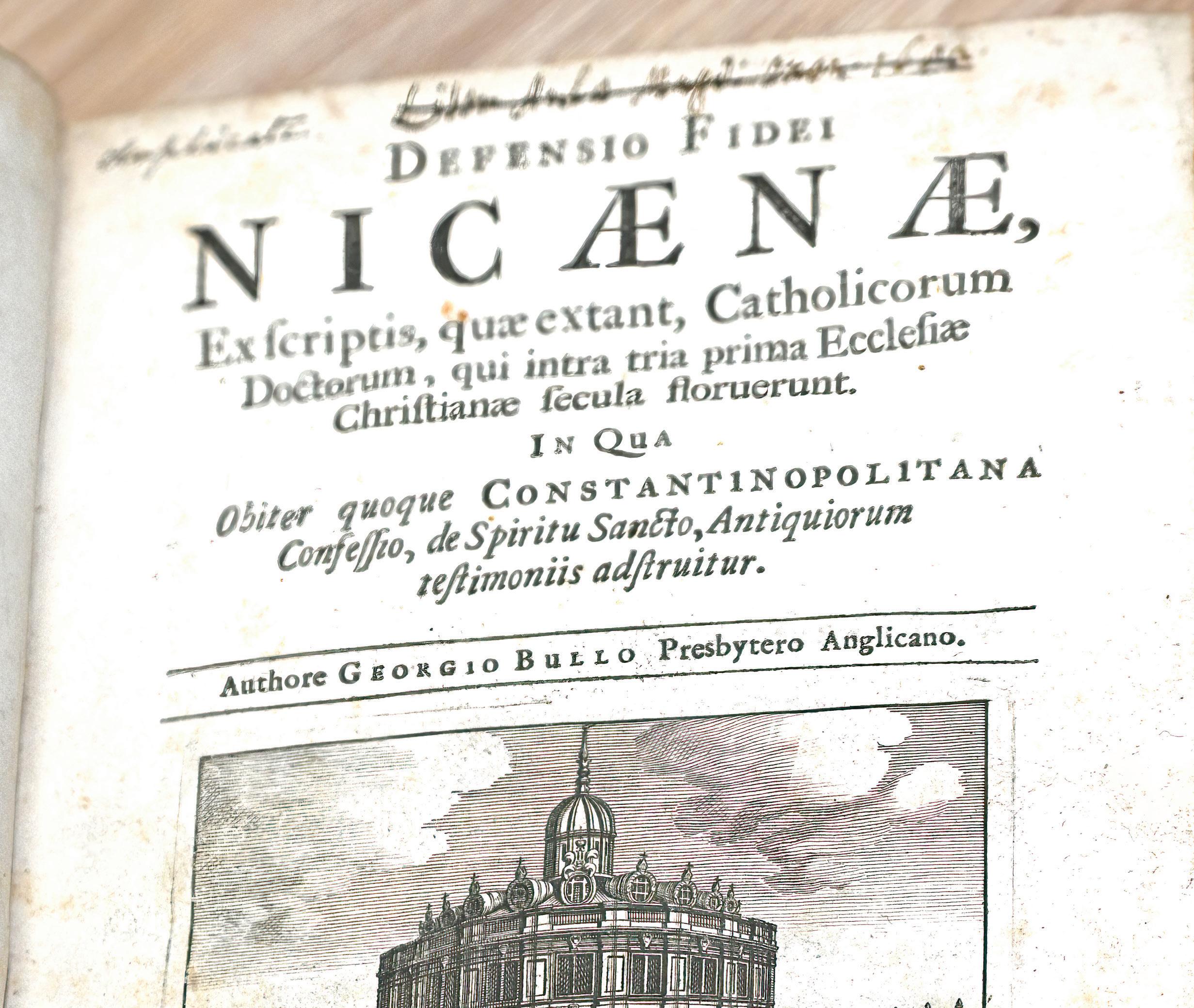
From time to time through the centuries, the need has arisen to make a succinct statement of the faith, or at least that part of the faith that is currently under attack. This year, we celebrate one of the most significant of these: the Nicene Creed, which was agreed upon and published in AD 325, 1700 years ago.
The Egyptian priest Arius and those who followed him were concerned to protect the uniqueness of God and the unity of his being. They believed that to speak of Jesus as God, on the same terms as the Father, compromised both these things. They were prepared to honour Jesus by speaking of him as the Son of God in an honorific sense due to his resurrection from the dead (Rom 1:4). But they were not prepared to acknowledge that he is as much God as the Father is and one in being with the Father. Jesus is, after all, the firstborn of creation (Col 1:15). In order to defend the full and perfect divinity of the Father, they believed they had to deny the full and perfect divinity of the Son.3
The 318 bishops who gathered in Nicaea
3 Discussion about the full and perfect divinity of the Spirit would come later in that century.
is not fully and perfectly God, as much God as the Father is, then he cannot save us. Since all creatures are caught up in the problem of sin and are unable to save themselves, only God can save us. If Jesus is not fully and perfectly God as much God as the Father is, then the testimony of Scripture is incoherent. “I and the Father are one,” Jesus told his disciples (John 10:30). “Whoever has seen me has seen the Father” (John 14:9). Paul wrote of Christ Jesus as the one who, “though he was in the form of God, did not count equality with God a thing to be grasped [or ‘held on to’]” (Phil 2:6). And John wrote of him, “No one has ever seen God; the only God [or ‘the only begotten God’], who is at the Father’s side, he has made him known” (John 1:18).
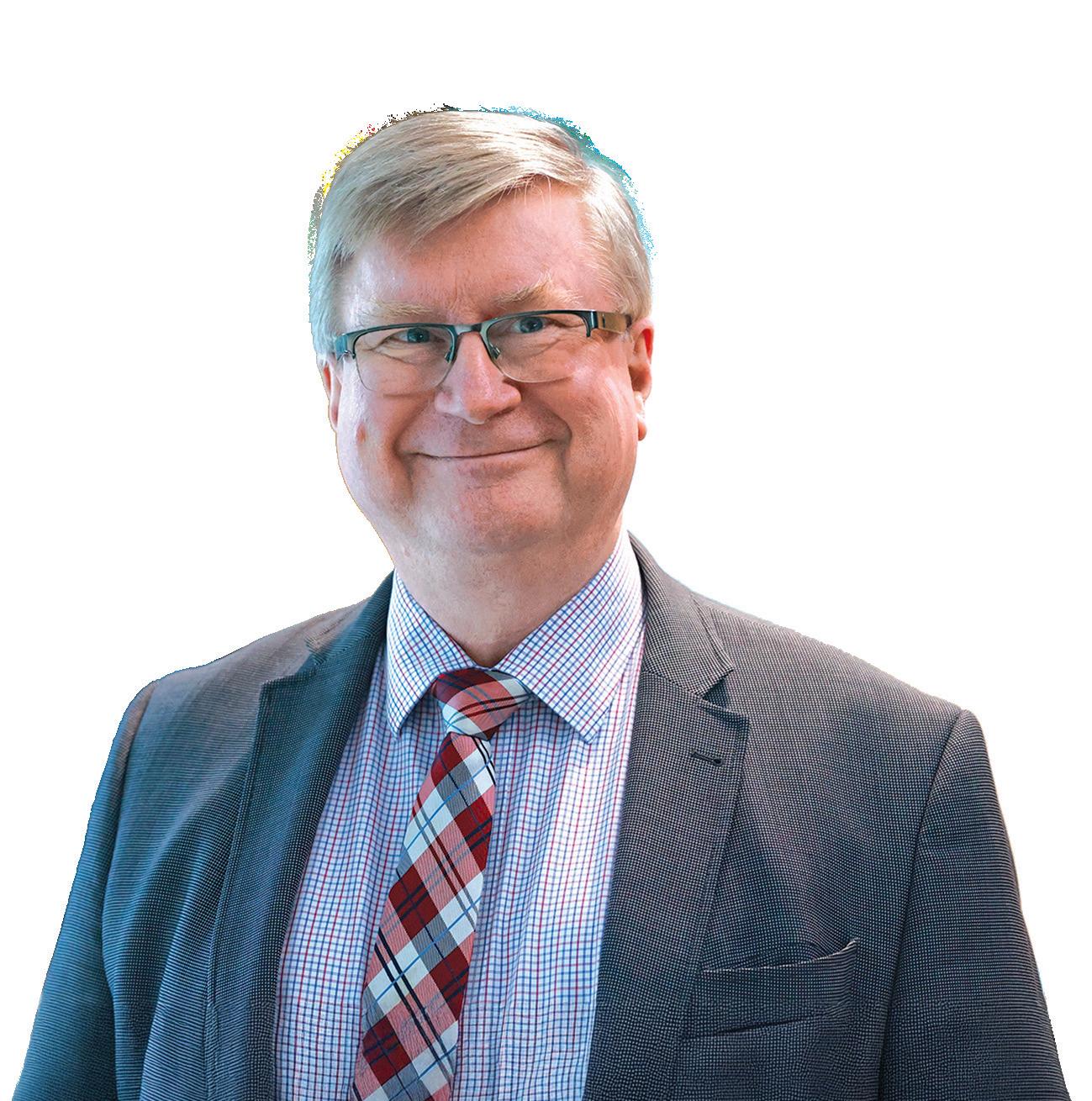
“ FAITH, AS CHRISTIANS UNDERSTAND IT, IS DEEPLY RELATIONAL ANCHORED IN CHARACTER OF THE ”
First Council ▸ of Nicaea (325), holding the NiceneConstantinopolitan Creed of 381
“ IT IS NOT SOMEONE LIKE GOD, OR SOMEONE CLOSE TO GOD, WHO CAME TO SAVE US; IT WAS GOD HIMSELF WHO DID IT. ”
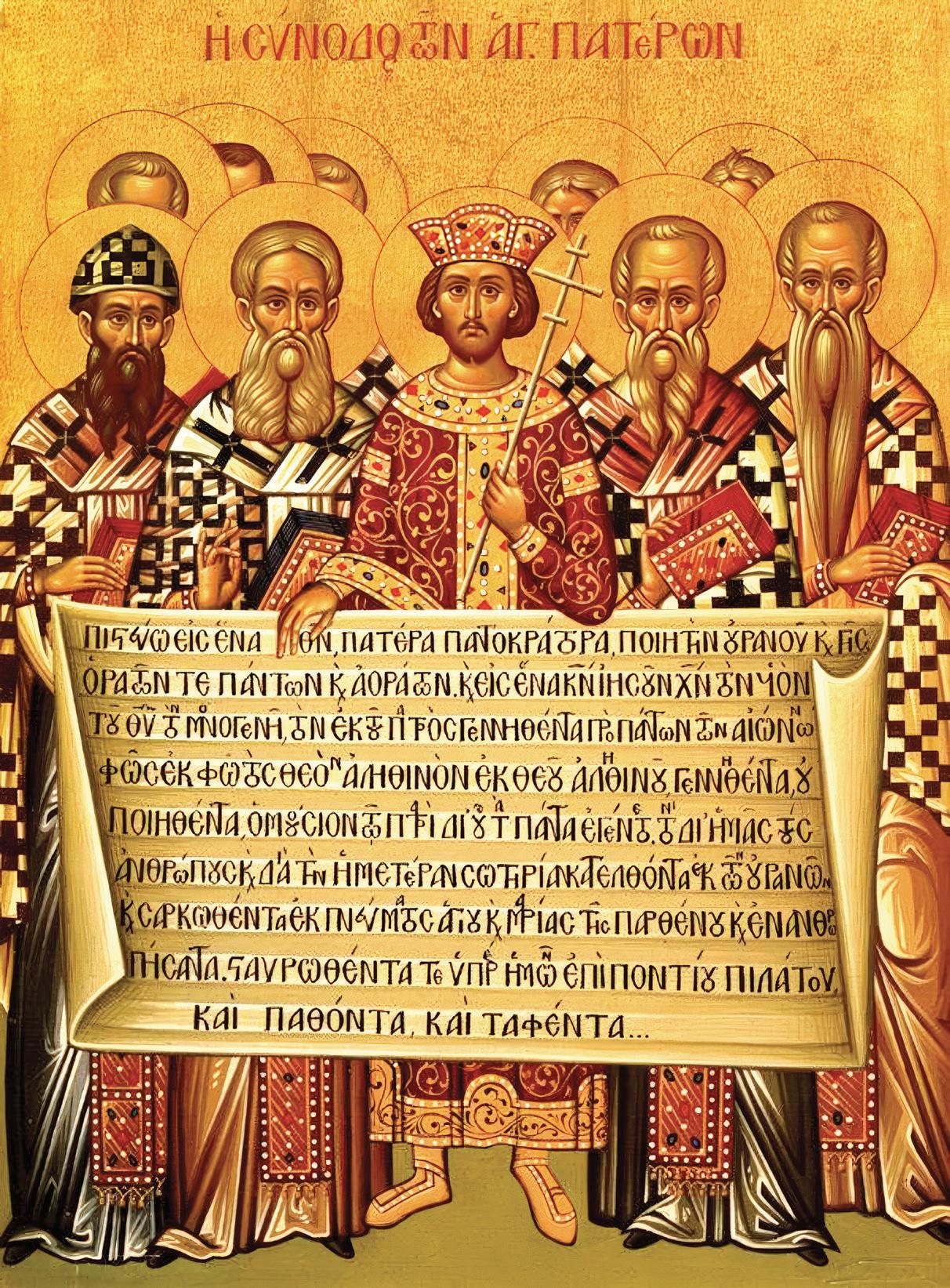
So the Nicene fathers penned a summary of the faith, focusing on what was in dispute at the time, and seeking to state and protect the meaning and the balance of Scripture. Our one Lord, Jesus Christ, is “the only Son of God”. He is “begotten not made”.
Most importantly of all, he is “of one being with the Father”. The word behind “of one being with” is not a biblical word, but it beautifully sums up what many words of Scripture, from various places in the canon, have always taught. It is not someone like God, or someone close to God, who came to save us; it was God himself who did it. This was not God requiring someone else to pay the price for our sin; it was God himself bearing that price, exhausting that judgement and justly dealing with our sin so
that there might be “no condemnation for those who are in Christ Jesus” (Rom 8:1).
An ancient expansion of the words of the Nicene Creed (what we today call the Athanasian Creed) speaks of “neither confounding the Persons, nor dividing the Essence”, and then goes on to say,
for there is one Person of the Father; another of the Son; and another of the Holy Spirit. But the Godhead of the Father, of the Son, and of the Holy Spirit, is all one; the Glory equal, the Majesty coeternal.
Just to drive the point home, the creed confesses, “and in this Trinity none is before, or after another; none is greater, or less than another. But the whole three Persons are coeternal, and coequal”.
This is why our salvation is unshakeably secure: it’s because it was accomplished by God himself. This is why we can trust Jesus’ revelation of God’s character and his purpose: because he is the one who, from all eternity, has been with the Father: “the Word was with God, and the Word was God” (John 1:1). This is what our faith is in.
This issue of Moore Matters is focused on faith. I hope you find it encouraging. Our faith is that confidence, grounded in the God we know, given to us by the Spirit. “The faith once for all delivered to the saints” is the good deposit that has been entrusted to us. That good deposit is rich and glorious. It is what the Spirit uses to nurture our faith. M M
About Moore College
Moore College exists to train men and women to take the good news of Jesus Christ to the world. Since 1856, more than 5,000 students have graduated from the College and have been sent out by God. Moore College has equipped men and women to serve in over 50 countries across the World.
Mark D. Thompson Principal
All bible verses quoted are from the English Standard Version.
Moore Matters is the newsletter publication of Moore Theological College. Principal of Moore College » The Rev Dr Mark Thompson Editors » Jamie Telfer, Karen Beilharz and Heidi Combs Art and Design » Lankshear Design
Moore Matters Copyright © Moore Theological College 2025 1 King Street, Newtown NSW 2042 Australia moore.edu.au | enquiries@moore.edu.au | +61 2 9577 9999 CRICOS #00682B | ABN 47 746 452 183
Erin Mollenhauer / Acting Library Manager, Senior Archivist and Special Collections Librarian
This year, we celebrate the 1700th anniversary of the Nicene Creed, the statement of faith first adopted at the first Council of Nicaea in 325 AD.
The Donald Robinson Library at Moore contains a wealth of resources on this creed, supplemented by the Ante-Nicene Fathers and Nicene and Post-Nicene Fathers series. In the Rare Books collection, we have two notable titles on the theology of the Nicene Creed: Von den Symbolis und Conciliis unterricht durch and Defensio fidei Nicenae.
Von den Symbolis und Conciliis unterricht durch D. Caspar Creutiger
First printed in Latin in 1548, this commentary on the Nicene Creed was written by lesserknown German Reformer Caspar Cruciger (1504-1548). Cruciger taught theology at the University of Wittenberg, and collaborated on Martin Luther’s translation of the Bible into German. Luther called Cruciger his “Elisha”,1 and Cruciger later edited the Wittenberg edition of Luther’s Works 2
This book, based on lectures on the Creed given by Cruciger at the university, is an expanded German translation with further discussion of the Trinity.3 As it is a very short book and required only six sheets of paper to print the whole work, it could have been typeset, printed and distributed quickly. The printer, Georg Rhau (1488-1548), was an organist,
1 Timothy J Wengert, “Caspar Cruciger (1504-1548): The Case of the Disappearing Reformer.” The Sixteenth Century Journal 20.3 (1989): 418.
2 Martin Luther, Der ... Teil der Bücher D. Mart. Luth. (Wittenberg: Lufft, 1539-1559). Parts 1-4 were edited by Cruciger and Georg Rörer.
3 Wengert, “Caspar Cruciger (1504-1548),” 421.
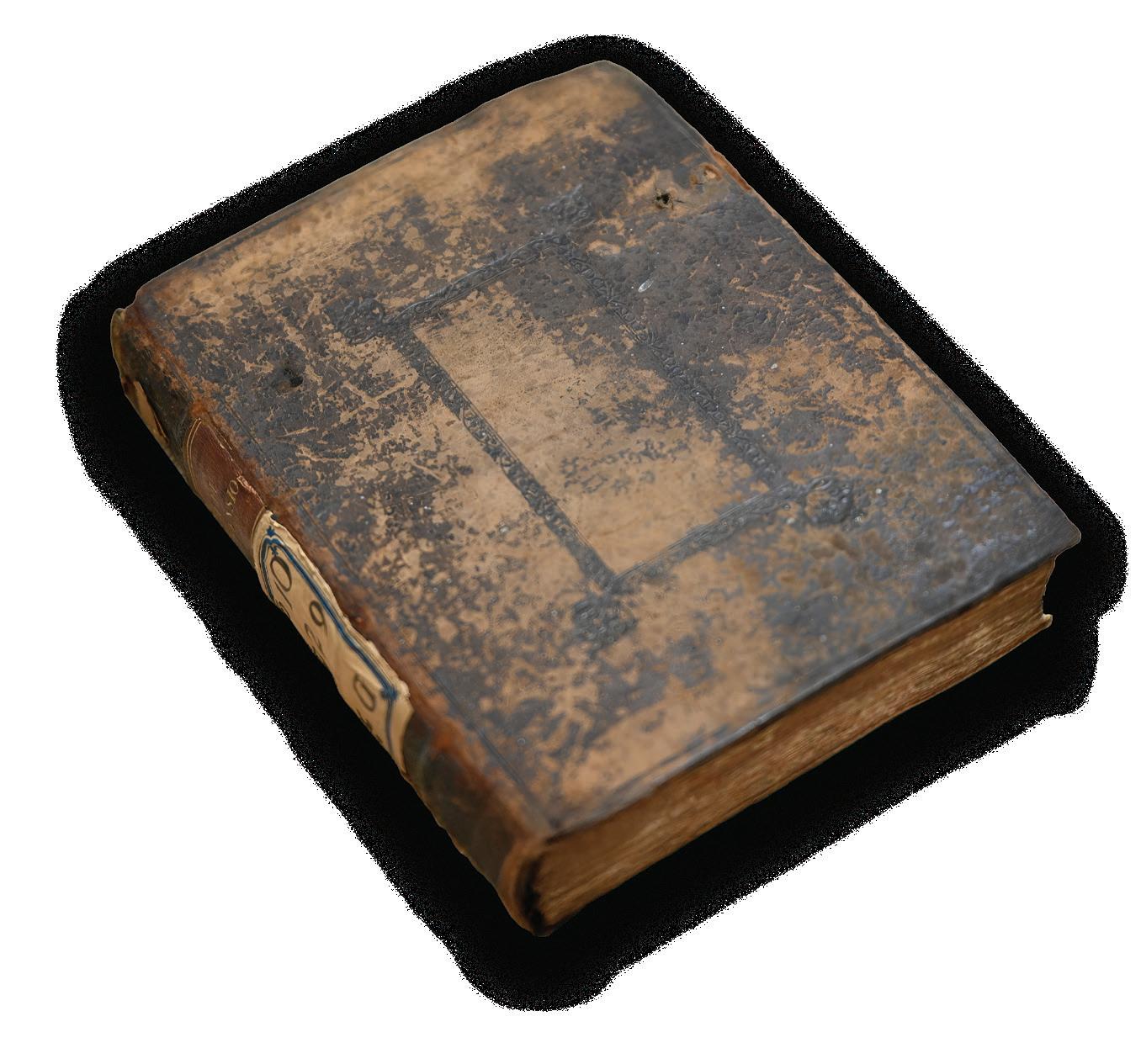
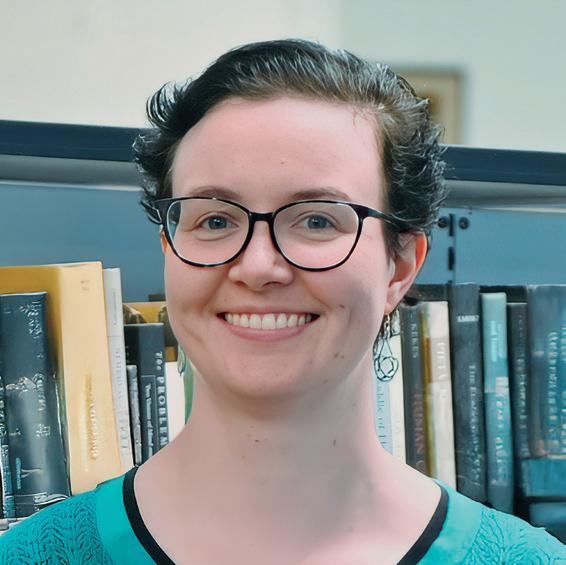
“ OF THE 21 COPIES STILL IN EXISTENCE, OURS IS THE ONLY ONE IN THE SOUTHERN HEMISPHERE.
composer and music publisher.4
Our copy of this work was acquired by the Library in 2017, along with first editions of works by Luther, to commemorate the 500th anniversary of the Reformation. Of the 21 copies still in existence, ours is the only one in the Southern Hemisphere.
Written in 1680 and published in 1685, Defensio fidei Nicenae (i.e. Defence of the Nicene faith) is the best-known work by English theologian and priest George Bull (1634–1710).
Bull was accused of Socinianism, a doctrine that rejected the Trinity, but he strongly affirms the doctrine of the Trinity established at the Council of Nicaea.
Bull was also notable for his monarchist loyalties: he left Oxford University in 1650 after refusing to swear allegiance to the Commonwealth, and hosted meetings of conspirators planning to restore the monarchy while he was in parish ministry in Siddington near Cirencester. Towards the end of his life, he was appointed Bishop of St Davids in Wales.5
▾ Von den Symbolis und Conciliis unterricht durch D. Caspar Creutiger 1548
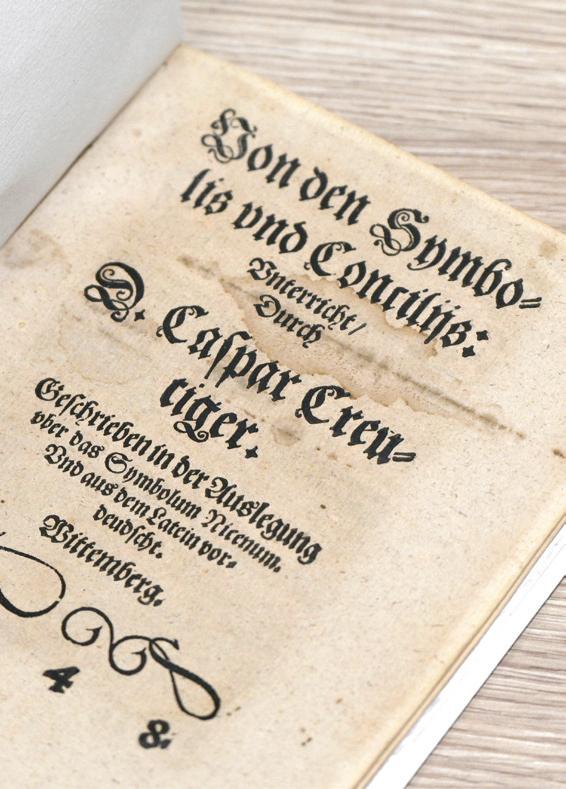
Our copy of this work was donated by Professor John MacBride, Principal of Magdalen Hall (now Hertford College), Oxford, in response to the appeal for books for the colonial clergy set up by Bishop William Grant Broughton in the 1830s. M M
To find out more about the Donald Robinson Library and to learn more about the Nicene Creed, visit www.library.moore.edu.au.
4 Moritz Kelber, “Power and ambition: Georg Rhau’s strategies for music publishing” in Early Printed Music and Material Culture in Central and Western Europe, ed Lindmayr-Brandl and McDonald (London: Taylor & Francis, 2021).
5 Cornwall, Robert D “Bull, George (1634–1710), Bishop of St David’s.” Oxford Dictionary of National Biography 2004.
Mark Earngey / Head of Church History

WITHOUT THE ENORMOUS CONTRIBUTION OF FAITHFUL IRISH CLERGY OVER THE LAST TWO CENTURIES, MOORE COLLEGE WOULD PROBABLY NOT BE HERE TODAY AND THE ANGLICAN DIOCESE OF SYDNEY WOULD PROBABLY NOT ENJOY ITS STRONGLY EVANGELICAL AND REFORMED CHARACTER.

In his early years, Frederic Barker (1808-1882) saw the staunch evangelicalism of the Irish during his involvement in the Irish Church Missions around Ulster. When incumbent of Matlock Bath in England, Barker engaged 29-year-old Irishman Edward Synge (1826-1871) as his curate. Synge sufficiently impressed Barker such that he became one of Frederic and Jane Barker’s travelling companions to Sydney. After Barker was enthroned as bishop, Synge became his private secretary and chaplain.
Barker needed to train clergy for the rapidly growing diocese, but his fledging Moore College was not yet producing sufficient students. His predecessor, Bishop Broughton (1788-1853), could call upon his English connections for help, but Barker had no such patrons. His solution was to travel to the UK and appeal for assistance.
Visiting Ireland in 1862, he presented a glowing report of Synge’s missionary successes around Sydney and secured a good stream of faithful Irishmen who were up for an adventure in the Antipodes!
Barker (1808-1882)
Second Anglican Bishop of Sydney
19th century
Upon Barker’s return to Australia, even Sydney-based Irishmen like Henry Archdall Langley (1840-1906) offered for ministry. Langley’s family had emigrated from Waterford in south-east Ireland in 1853. Langley trained at Moore, and was deaconed and priested by Barker. He enjoyed a fruitful ministry at St Mary’s Balmain and went on to become the first Bishop of Bendigo in Victoria.
Shortly before his death in 1882, Barker recruited the Clonmel-born Mervyn Archdall (1846-1917) to further the growing ministry at St. Mary’s Balmain. Archdall served with gusto, soon becoming a prominent leader in the diocese due to his impeccable Reformation credentials and polemical abilities (both Irish specialities). Mervyn and his wife Martha also laid the foundations for deaconess ministry in Sydney, the basis of today’s Anglican Deaconess Ministries (ADM).
The saddest story of IrishSydney connections is that of Everard Digges la Touche (1883-1915). Born in Antrim, Northern Ireland, la Touche was blessed with stellar theological abilities. He studied at Trinity College
Mervyn Archdall (1846-1917)
St Mary’s Balmain; Founder of today’s Anglican Deaconess Ministries
Henry Archdall Langley (1840-1906)
St Mary’s Balmain; Bishop of Bendigo
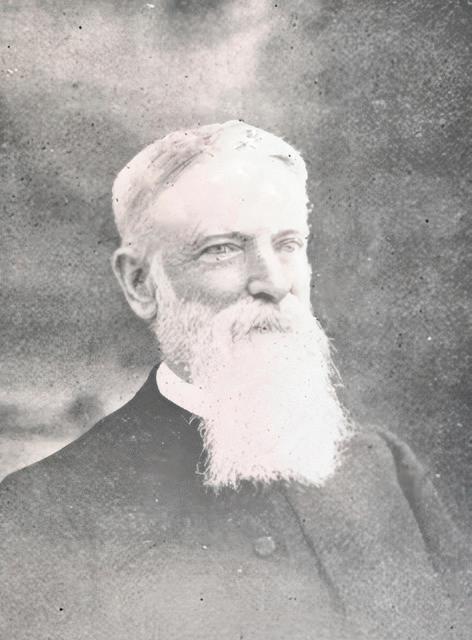
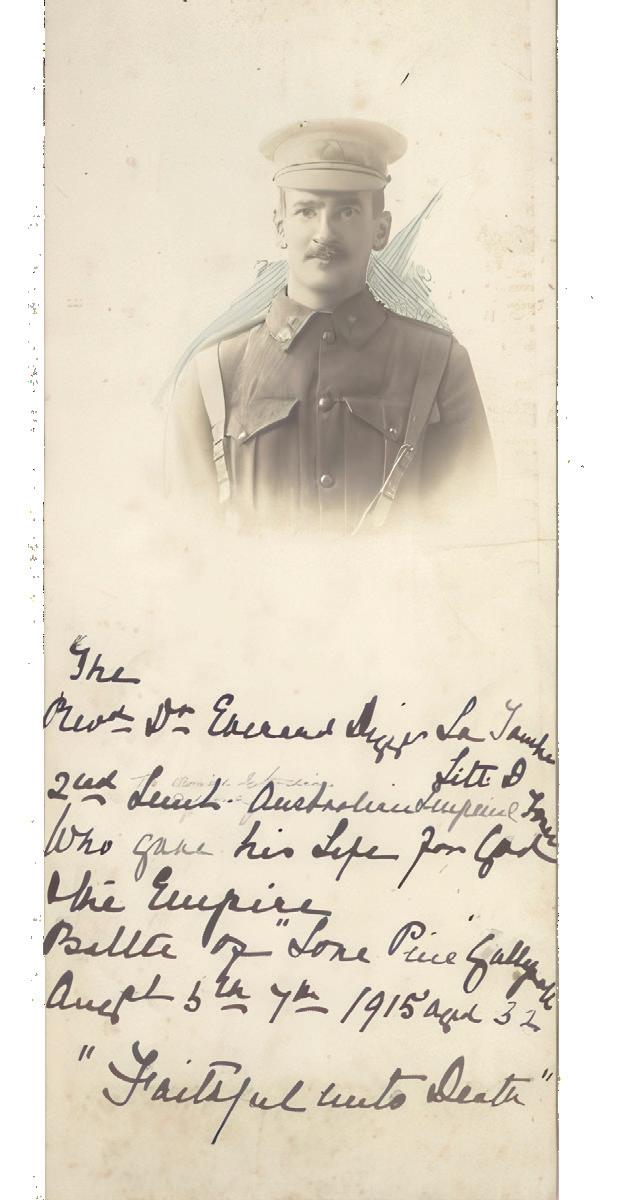
Dublin and gave a set of endowed public lectures on Christology there in 1911. He moved to Australia and was Lecturer in Dogmatics at Moore from 1912 to 1914. He resigned due to what he perceived to be the liberal theology of Principal D. J. Davies. During World War I, la Touche enlisted as a private soldier, and was killed within hours of landing in Gallipoli.
One Moore College student who prayed for the end of Davies’ liberal evangelicalism was Stephen Bradley (1909-2003) (later Bishop of the Church of England in South Africa). His father was William Bradley (1870-1945) who was born in Newry, Ireland, and earned the nickname “Cairo” due to his pioneering evangelistic

work in Egypt. When William Bradley arrived in Sydney in 1919 he brought his missionary zeal to these shores and his “tent missions” saw hundreds, if not thousands, converted to Christ’s kingdom.

Prayers about the woeful state of the College were answered when Irishman
T. C. Hammond (1877-1961) was appointed Principal in 1936. Born in Cork, Hammond had been a street preacher, Anglican minister in Dublin and superintendent in the Irish Church Missions. He possessed an extraordinary mind and love for the word of God, and he returned theological strength and biblical convictions to the College.
Hammond worked closely with Archbishop Howard Mowll, whose successful election was
largely due to the work of David James Knox (1875-1960). Born in Enniskillen, Northern Ireland, Knox was another strong evangelical reformed Anglican clergyman. He laboured vigorously for the Australian Church Record, and was very active in the Anglican Church League. Perhaps his greatest gift to the Sydney diocese was his son, David Broughton Knox, who succeeded Hammond and sealed the reformed evangelical character of Moore in ways still felt today.
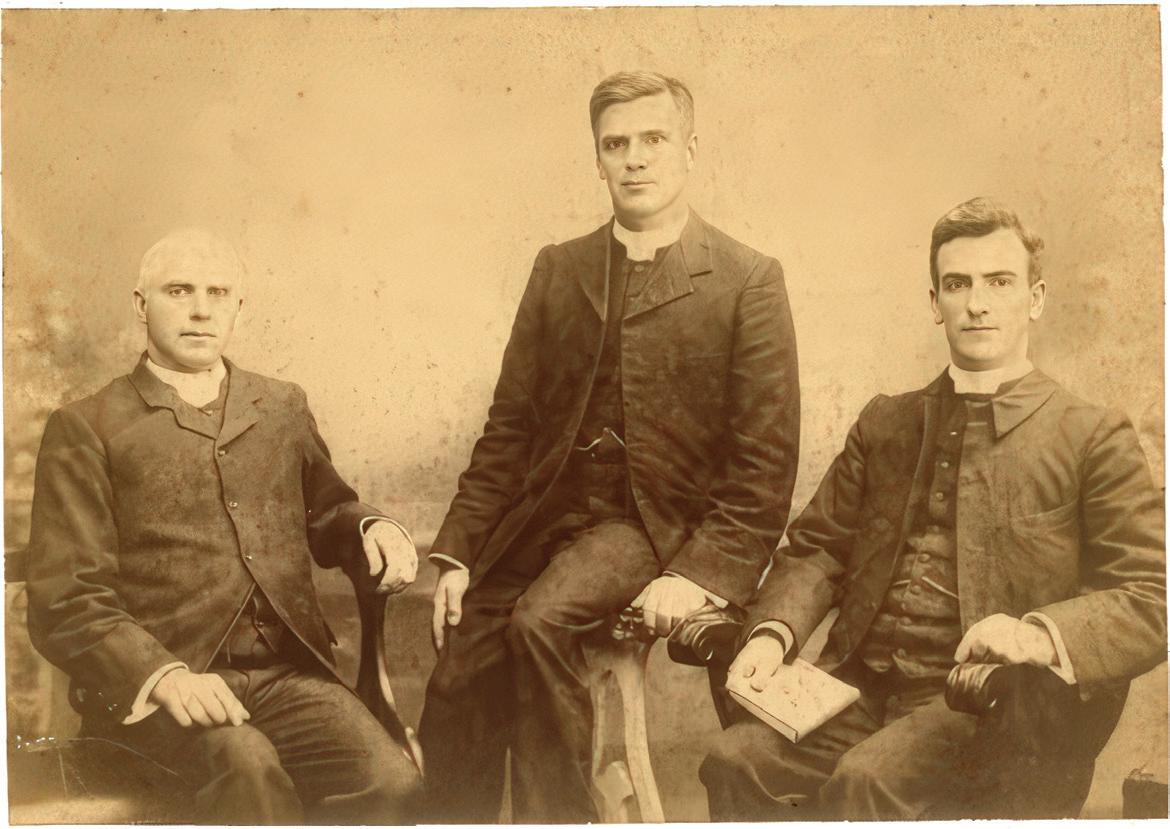
The College currently has two Irish faculty members: Paul Williamson and Peter Orr. Many Irish students, such as Jonathan Gibson, Tom Murray, Peter Blair, and Jordan Cunningham, have also studied here. Various Irish citizens are current students, and more will come next year. In addition, in recent years, Peter Orr, Mark Thompson, and myself have been able to teach and preach in Ireland through GAFCON Ireland and All Saints Anglican Church in Belfast.
The biblical, reformational, theological and evangelistic values of our Irish friends are now all strengths of Moore College. In the Lord’s kindness, we are stewards of much. It’s a joy to train Irish men and women, see them ordained for Anglican ministry, and watch them preach the gospel upon their own shores. Our Irish friends cast their bread upon the waters and have blessed Sydney Anglicans in incalculable ways; let’s return the favour! M M
◂ Left column image: Consecration of Stephen Bradley as Bishop of South Africa; 1961. Bradley on right with Bishop Peter Chamane and Bishop G.F.B. Morris
21st century
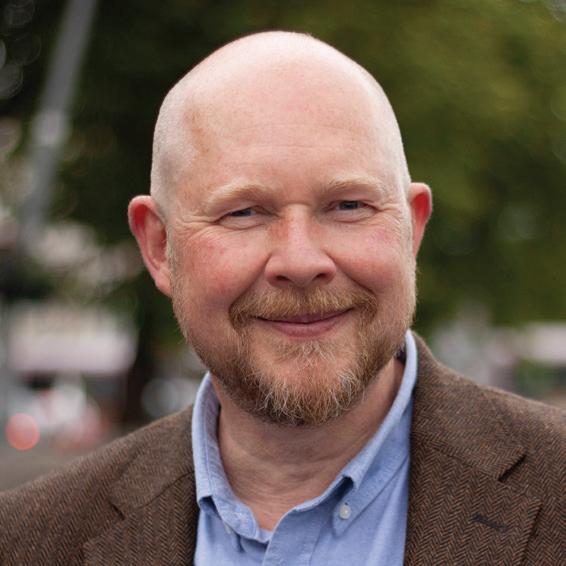
Cameron
Jones, Diploma of Biblical Studies 2003 graduate
“ IRELAND IS THE ONLY ENGLISHSPEAKING COUNTRY SHAPED PRIMARILY BY ROMAN CATHOLICISM.”
Of the five million people living in the Republic of Ireland, four million don’t even have one friend who can explain the saving message of Jesus clearly. That’s hard to imagine if you’re familiar with Northern Ireland, where vibrant evangelical Christianity continues to shape public and private life. The Republic is very different: south of the border lies the Englishspeaking world’s least-evangelised nation.
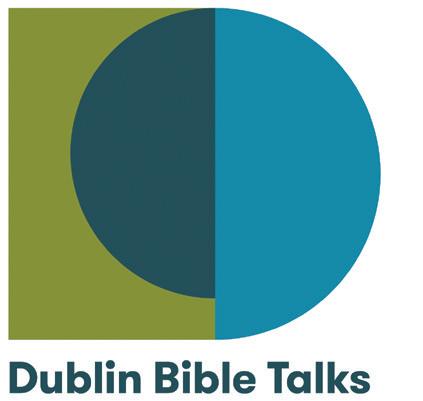
professionals—much like City Bible Forum in Australia. It’s helping Christians to stand firm in their workplaces and to offer clear gospel teaching to friends and colleagues. Around 10–12 people join each week on Zoom, with more than 40 connected to the ministry overall.
• Thank God for his church in the Republic of Ireland and ask him to have mercy on the lost.
• Ask God to bless the work of Cameron Jones and Irish Church Missions and give them wisdom as they seek to plant and grow gospel-centred churches across the Republic.
• Ask God to raise up more workers for his harvest field in Ireland.
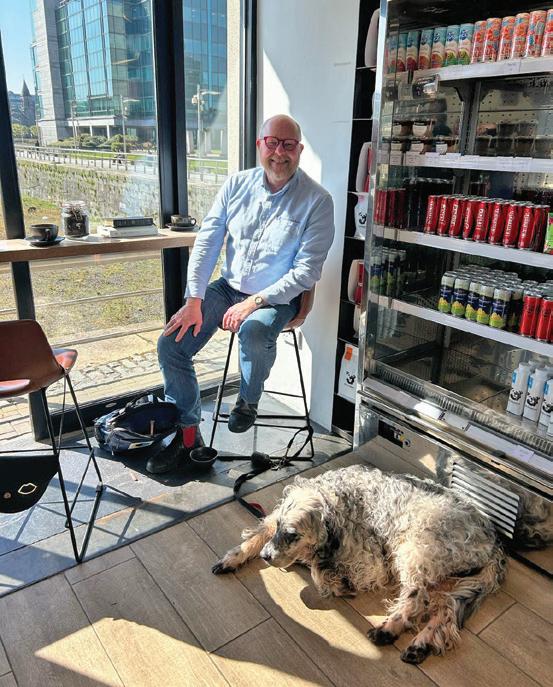
My wife Alex and I served in Northern Ireland for 12 years. There, the legacy of “The Troubles” meant nearly everyone had a story of conflict or loss. In Dublin, the capital of Ireland, the pain runs along different lines—stories of religious abuse, cover-up and collusion. Everyone we meet knows someone who has suffered. My friend Thomas said it starkly: “We’ve been oppressed by two occupying powers: the English and the Roman Church.”
In a society once tightly bound to the Roman Catholic Church, many now equate freedom with leaving it all behind. Divorce was legalised in 1995; same-sex marriage followed in 2015; and abortion became legal in 2018–all passed by public referendum. In 1971, over 90 per cent of people in Ireland attended weekly Mass; in Dublin today, that number is around 14 per cent.
The name of Jesus is still known, but is often misunderstood; he’s buried beneath layers of tradition, superstition, false teaching and pain. But the real Jesus is better than the caricature. That’s why Irish Church Missions still exists 175 years later: our goal is to plant and grow gospelcentred churches across the Republic.
In 2020, we launched the Dublin Bible Talks, a mid-week, lunchtime Bible teaching ministry for city workers similar to CRU or AFES, but for
We’re also preparing to plant a new church in Bayside, a suburb of North Dublin with about 6,000 people that has never had an evangelical church. In the surrounding area, which has a population of 58,000, there are just two evangelical churches. One of them—Christ Church North Dublin—started five years ago and now has about 20 core members. By God’s grace, I’ve recently joined that church as Resident Church Planter. We’re praying that within the next five years, a new gospel community will take root in Bayside.
The work is more cross-cultural than we expected. Dubliners may resemble Sydneysiders in outlook, but the religious landscape is entirely different. Ireland is the only Englishspeaking country shaped primarily by Roman Catholicism. It has more in common with Spain or Italy than with Northern Ireland, England or Australia. We’re learning to speak a different religious language—one that uses the same words, but they mean something entirely different. It sounds like shared faith, but it’s not.
If you’re thinking about overseas ministry, consider Dublin. It’s a brilliant city for gospel work, and an alternative to London for a career move. The theological training you’ve received from just being part of a Bible-teaching church in Sydney has already equipped you far more than you might realise. Join us as we seek to evangelise a church into existence in a place where the gospel is desperately needed and where people need to know that Jesus is better than they dare to believe! M M
Jordan Cunningham / Ministry worker, All Saints’ Church Belfast, Northern Ireland
WHEN I THINK OF CHURCH IN MODERN BELFAST, I THINK OF A VIBRANT CHRISTIAN SCENE SURROUNDED BY THE SAME CULTURAL PARADIGM SHIFT THAT MOST OF THE WESTERN WORLD HAS ALREADY EXPERIENCED.
Being such a small country, we’re generally much slower to “progress” in our cultural values —an observation mostly intended as a compliment. Unexpectedly, this unhurried rate of change now sees our society caught between the receding tides of humanist secularisation and the swelling desire for precisely that spiritual substance that secularisation drives out by its very nature.
Positively speaking, however, I’m continually encouraged by the numerous strong and faithful churches with large numbers of young people that exist in our city. Despite our small population, Queen’s University has one of the largest Christian unions in Europe, and this is due in large part to the long history of faithfulness on our island. To explore Jesus in Belfast is, in many ways, to be spoiled for choice!
That said, this paradigm shift has also resulted in many churches’ decline. Our slowness to adapt often means that congregations struggle to break free from the specific expressions of faith and church life that made sense 50 years ago, but that are now alien and counter-intuitive to anyone not raised with them. You might sense it in little things, like overly formal and bloated announcements during the service, or the ancient china used to serve the cheapest tea and coffee imaginable. More importantly, you feel it in the styles of ministry and outreach that have failed to bear fruit for years, but have remain unchanged because “That’s what we’ve always done”.
The sad reality is that many churches are unable to balance the internal, unchanging gospel with the external, ever-shifting cultural values and communication styles. They have either closed their doors already or they continue in a dwindling state of spiritual palliative care.
Still despite these very real challenges,

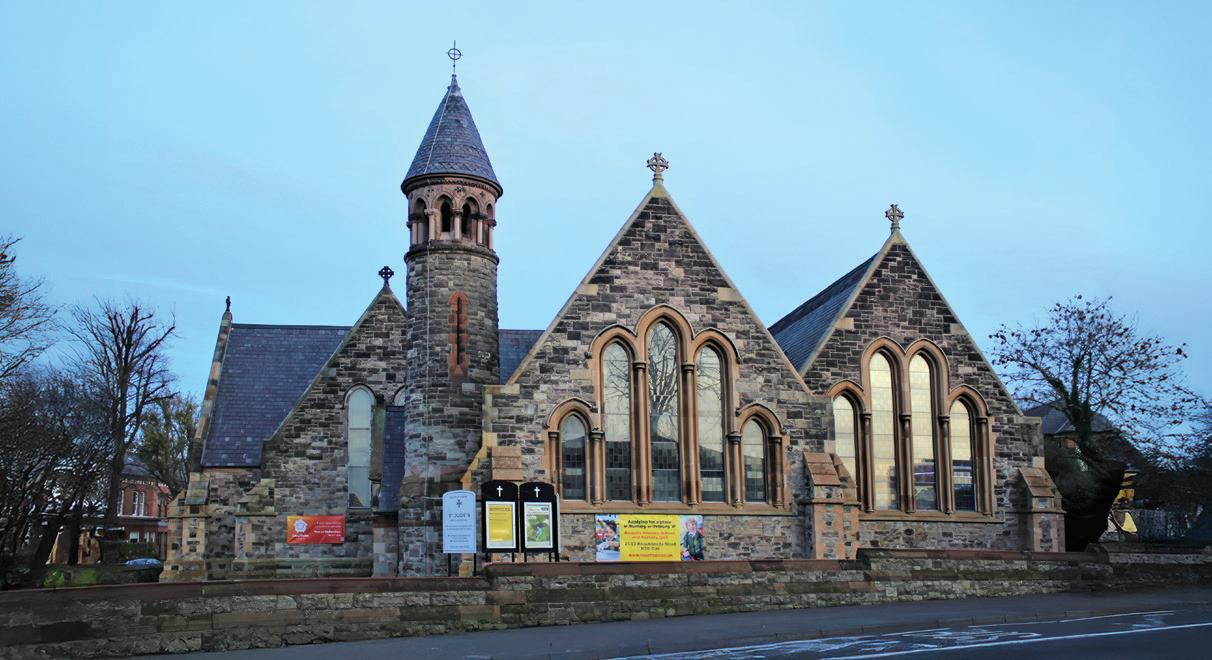

I regularly encounter a new generation of Christians who are well-instructed in the faith by their elders, yet who also understand the modern world in which they’ve been raised. I have great confidence that God has not slowed his blessings in our city (though perhaps we are experiencing a little pruning!) Through these trials, he is preparing his people for the next frontier of spiritual warfare as we eagerly await Christ’s victorious return.
Should an Aussie believer find themselves in Belfast, they might need to double check the church coffee on offer. But they’ll definitely find many a welcoming spiritual home waiting for them! M M

“ TO EXPLORE JESUS IN BELFAST IS, IN MANY WAYS, TO BE SPOILED FOR CHOICE! ”
“ TO THIS DAY, IRELAND REMAINS THE LEAST-EVANGELISED ENGLISH-SPEAKING NATION IN THE WORLD.

IN LATE 2019, I SAT DOWN WITH AN ORDINATION OFFICER IN THE CHURCH OF IRELAND TO DISCUSS MY DESIRE TO PURSUE VOCATIONAL MINISTRY.
Early in the conversation, he asked, “Why ordained Anglican ministry?” I replied with what I believed to be the true and obvious answer: I yearned to preach the gospel faithfully for the salvation of the lost and the building up of God’s church.
Before going in, I had imagined a variety of responses that all shared a similar message of encouragement or edification. But nothing could have prepared me for his answer: “Then you’re not going to fit in here. But thanks for coming in.” In that moment, I realised the Church of Ireland was in trouble.
In 2022, I shared that experience with my rector, a man whose Christ-centred faith stands out boldly in a denomination that often fears gospel clarity. He urged me to pursue ministry training, using that story as evidence of why the Irish church needs more Bible-believing, gospelhearted ministers.
But one thing he made crystal clear: “If you’re going to be trained for Christ-centred, God-glorifying, word-based ministry, it has to be in Sydney.” The fruitful relationship the
Sydney Diocese has with the faithful remnant of gospel ministers in Ireland is long-standing. Moore College’s reputation for deep, rigorous theological training had reached even us, 10,000 miles away.
When my rector first suggested this, I laughed it off; Sydney felt impossibly far. But the Lord provided in ways that my wife and I could never have imagined. Now each day we spend at Moore, we thank God for this gift of training— for the wisdom of the faculty, the blessing of community, the equipping of both myself as a student and Bex as my wife, but most of all, the paramount focus on Christ and his word.
To this day, Ireland remains the leastevangelised English-speaking nation in the world. Churches line our streets, but a mere fraction preach the saving gospel of Jesus. Lordwilling after four years of College, we hope to return to Ireland, equipped to proclaim Christ faithfully to a nation that’s growing ever more hostile to God’s word.
Since our arrival, another couple from our church in Ireland has joined us at Moore, and another is in the process of applying. Please partner with us in praying that the Lord would continue raising up ministers of the gospel for Ireland (north and south) for his glory and for the salvation of many. M M
• Thank God for the opportunity he has given Tim, Bex and other Irish students to study at Moore. Ask him to equip them for the good work he has prepared for them to do.
• Ask God to provide more workers for his harvest field in Ireland.
• Ask God to have mercy on the lost in Ireland and to bring them to repentance and faith.
Paul Williamson / Lecturer, Old Testament Department
PAUL WILLIAMSON HAS RECENTLY COMPLETED A SERIES OF CHAPEL SERMONS ON MALACHI. FIRST STARTED IN 2022, THE FINAL SERMON WAS DELIVERED IN APRIL THIS YEAR. ALL THESE TALKS ARE AVAILABLE THROUGH THE MOORE IN THE WORD PODCAST.
Scholars debate the precise setting of Malachi, but one thing is clear: the prophet’s audience was facing a crisis of faith. This crisis is expressed in the opening verses, where the people doubt God’s love (Mal 1:2).
Their doubt explains the other serious problems to which the prophet calls their attention: the dishonouring of God’s name through unacceptable worship (1:6–2:9); the desecration of God’s covenant through marital unfaithfulness (2:10–16); the denigration of God’s integrity by challenging his justice (2:17; 3:13–15); and the delaying of God’s blessing by holding back what he demanded (3:6–12). A crisis of faith resulted in gross failure to be faithful—both to their covenant Lord and to one another.
Not surprisingly, the prophet reassures them (and us) of God’s covenant love and faithfulness (1:2b–5), encouraging repentance
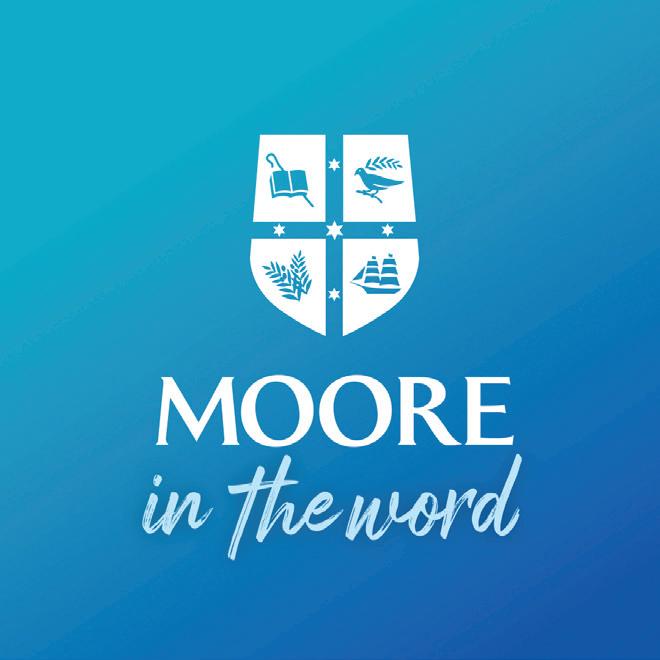
in the knowledge that God’s plan will prevail.1 Whatever some might think, it is not futile to serve God (cf. 3:14). Rather, those who fear and honour the Lord—whether in Malachi’s day and in our own—are God’s treasured possession, and thus have nothing to fear when God finally distinguishes between the righteous and the wicked—between those who serve God and those who do not (3:16–18).
Of course, as Malachi anticipates and the father of John the Baptist later attests, the allimportant key to this is “the rising sun” (4:2). It is he who has “come to us from heaven to shine on those living in darkness and in the shadow of death, to guide our feet into the path of peace” (Luke 1:78–79). M M
1 Repentance: 1:10, 2:2, 15–16, 3:7; 4:2, 6. God’s plan will prevail: 1:5, 11, 14; 3:1–4, 10b–12; 4:1–3.
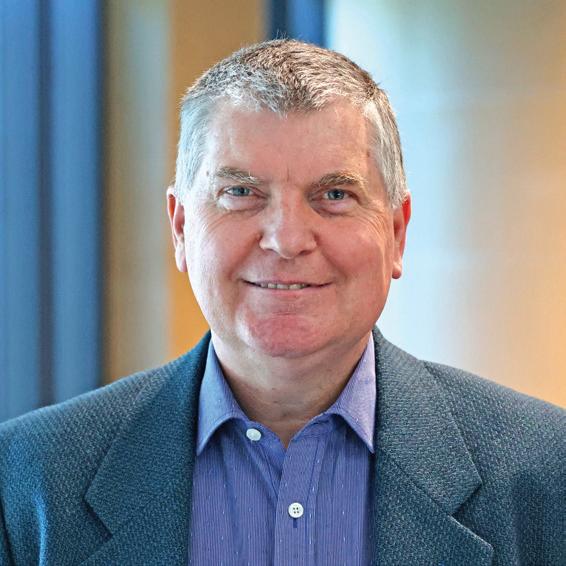
Paul Williamson is a member of the Old Testament Department, and has been teaching at Moore since the beginning of 2001. At the invitation of Peter Jensen, Paul and his wife Karen initially came to Sydney from Belfast for a three-year secondment. In the providence of God, that marvellous crosscultural experience turned out to be for much longer than they could ever have imagined. The banter they enjoy with their Aussie friends and all those who have come to Moore from Northern Ireland has certainly helped make Moore a home away from home.
CHECK OUT THESE PODCAST EPISODES WITH PAUL WILLIAMSON:
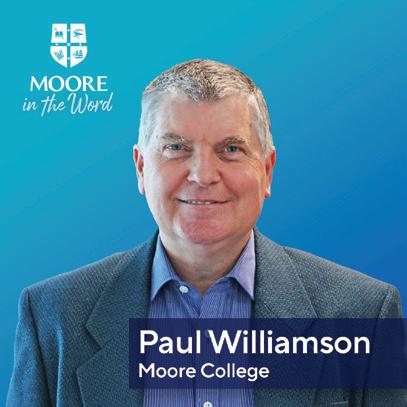
Listen on:
• Deriding God’s integrity (Mal 3:13-4:6)
• Delaying God’s blessing? (Mal 3:6-12) or your favourite podcast platform

Peter Orr is a member of the New Testament Department and has been teaching at Moore since 2014. Peter grew up in Northern Ireland and was converted through a combination of reading the New Testament and attending a Billy Graham meeting. After a variety of studies in the UK and Australia and missionary work in Romania, Peter, his wife Emma and their family landed in Australia teaching at Moore College.
“ WHAT DID JESUS MEAN WHEN HE SAID THAT IF WE HAVE FAITH, WE CAN TELL A TREE TO BE UPROOTED OR A MOUNTAIN TO MOVE, AND THEY WILL OBEY?”
Peter Orr / Lecturer in New Testament
THE BIBLE IS CLEAR: IT IS FAITH, AND FAITH ALONE, THAT SECURES OUR SALVATION. JOHN 3:16 PROMISES THAT WHOEVER BELIEVES IN JESUS “SHALL NOT PERISH BUT HAVE ETERNAL LIFE”. TO THE PHILIPPIAN JAILER WHO ASKED HOW HE COULD BE SAVED, PAUL REPLIES, “BELIEVE IN THE LORD JESUS, AND YOU WILL BE SAVED” (ACTS 16:31).
I
t’s not just the New Testament that makes these assurances; the Old Testament holds wonderful promises relating to faith or trust. David affirms to God that he has “trusted in your steadfast love” and so his heart “shall rejoice in your salvation” (Ps 13:5). Isaiah declares that “God is my salvation; I will trust and will not be afraid; for the Lord God is my strength and my song, and he has become my salvation” (Isa 12:2).
Even though this promise of salvation is wonderfully simple to understand, we can still have difficult questions regarding faith. For example, what did Jesus mean when he said that if we have faith—even faith as small as a mustard seed—we can tell a tree to be uprooted or a mountain to move, and they will obey (Luke 17:6, Matt 21:21)? Why does Paul say that we are declared right with God by “faith apart from works of the law”, while James is equally insistent that “a person is justified by works and not by faith alone” (Rom 3:28, Jas 2:24)?
Furthermore, what exactly is faith, anyway? Most of us know that faith is not “believing something you know is not true”. But what is the relationship between belief and knowledge? Are they the same? Is faith a kind of superknowledge?
Also, what about obedience and faith? Does obedience matter? How does it relate to faith? Some want to say that saving faith is closer to “allegiance” or “faithfulness”, thus focusing on
what we do. Others want to say that if we make faith necessary for salvation, we turn it into a work and detract from the work of Christ. Who is right?
There are a lot of confusing and contradictory ideas about faith in the world. For this year’s Annual Moore College Lectures, I have the privilege of delivering five lectures on faith—particularly, how God gives us an unfolding revelation of faith across the whole Bible. We will see that faith has always been the means by which God saves his people. We will see that people have always been tempted to turn away from faith in God and turn to other “saviours” to deliver them. We will, I hope, grow in our clarity regarding what faith is, and, more importantly, grow in our trust in God’s saving work for us in Christ.
As I have worked on these lectures, I have been struck afresh by the power of God for salvation. I have been encouraged to continue to look to him and to grow in my appreciation for his salvation. My prayer is that for those who attend or who watch later, these lectures will be a rich time of growth for all of us as we look at this aspect of God’s word together. I hope to see you there! M M
The 2025 Annual Moore College Lectures will take place 4-8 August. Visit moore.edu.au/events/amcl for further details and to register.
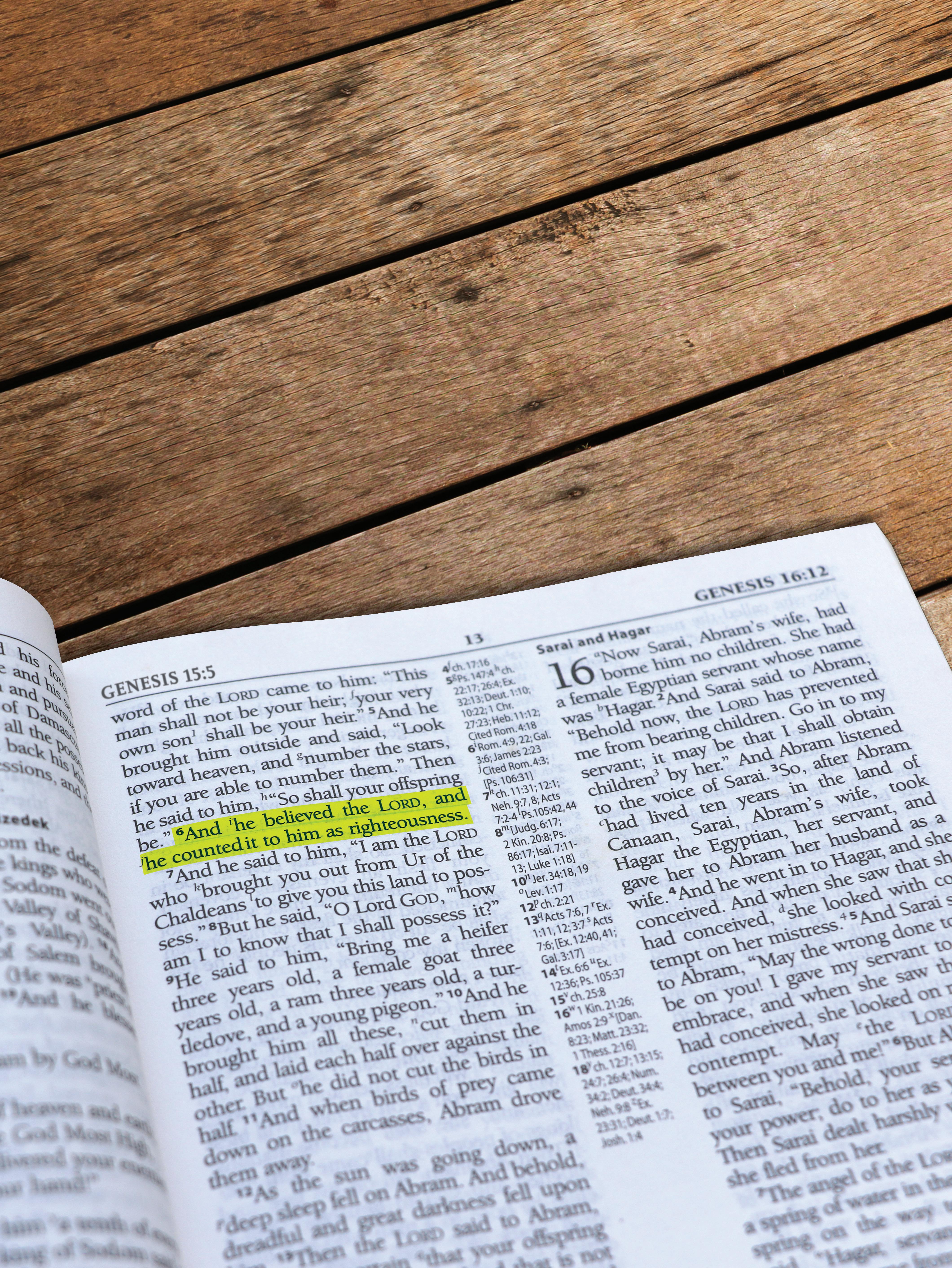

SPEAKER

Peter Smith / Chair of GAFCON Australia and Karen Beilharz / Moore Communications Team
THE CITY OF PERTH HAS UNDERGONE A SIGNIFICANT SPIRITUAL TRANSFORMATION OVER THE PAST FORTY YEARS THROUGH THE PREACHING OF GOD’S WORD.
O“ ONCE CONSIDERED A BIBLICAL WASTELAND WITH VERY FEW EVANGELICAL CHURCHES THAT PREACHED AND BELIEVED THE GOSPEL, NOW IN MOST REGIONS OF PERTH, YOU CAN FIND A REFORMED, BIBLE-TEACHING EVANGELISTIC CHURCH. ”
nce considered a biblical wasteland with very few evangelical churches that preached and believed the gospel, now in most regions of Perth, you can find a Reformed, Bible-teaching evangelistic church, and the Anglican Diocese of North West Australia has become thoroughly evangelical. This is all due to God working through a long line of faithful men and women whose ministry has had a profound effect across the city and state.
Here are some of their stories.
David Seccombe
In 1979 after graduating from Moore College, David Seccombe became rector of St Matthews Anglican Church Shenton Park in Perth. Initially, he was hesitant about doing ministry in what seemed like a very traditional and restrictive denomination. But over time, God opened his eyes to the enormous opportunities available for an Anglican minister in a part of Australia that was losing touch with God.
Having learned about the centrality of the Bible and of fellowship from then-Moore College Principal David Broughton Knox, David was eager to apply this principle at St Matthews. He says, “In our early days in Perth, the general pattern of church life was for people to come to church, take the sacrament and disappear with almost no contact with others. Preaching the gospel had a huge impact.” Over time, people began to change and care, serve and look out for others.
Tim Thorburn*
One of those people was Tim Thorburn. Born of a missionary family in East Africa, Tim grew up in Sydney and, as a student, came under the
influence of the ministry at the University of New South Wales, where he ended up doing his ministry apprenticeship.
Study at Moore College followed, and then an invitation to work at St Matthews Shenton Park with David Seccombe in the mid-1980s. Tim says, “I knew nothing about Perth, but I’d heard that the Archbishop of Perth was not somebody who believed the Gospel of Jesus as it’s revealed in the Scriptures. I thought if the Archbishop doesn’t, maybe that’s a place worth going to.”
At the time, there were not many evangelical churches in Perth that believed the gospel, taught the Bible well and evangelised others with the Bible. Tim remembers a key conversation with David and a man named Allan Chapple who had done some church ministry with the Methodist church: “We just sat down and started to think together what would it take to change the landscape. We came up with a very reductionistic simple thing: we needed some churches that modelled that ministry; we needed a theological college that trained people locally so we didn’t send them all east and lose them; and we needed a student ministry that produced the students for that college. And so we just started to sort of work towards that and pray towards it.”
Allan became the founding principal of Trinity Theological College, David went to South Africa to train pastors at George Whitefield College, and Tim eventually left parish ministry to work for the Australian Fellowship of Evangelical Students on the campuses of Perth.
One of the students that Tim worked with was Rory Shiner. Born and raised in Albany, Rory first encountered Reformed theology while on a gap year in Africa. Rory says, “I thought, ‘This is fantastic!’ But it didn’t have the evangelistic

edge that I appreciated from my background in Western Australia, which was a much more revivalist, pietistic Baptist Christianity. I thought, ‘These guys are just a bit muted on the evangelistic front.’”
Then while studying English and Anthropology at the University of Western Australia, Rory met Tim and became involved with the Christian Union. “I saw the way Tim handled the Bible. That was a major moment for me,” says Rory. “I didn’t know it then, but it was Reformed. It sounded like what I had heard in Africa. I could see that Tim was working from the text: he was really paying attention to it and letting it speak. Also, his preaching was evangelistic. That was the trifecta for me.”
At the time, Rory was attending St Matthews Shenton Park with David Seccombe, where he also heard Reformed, expository preaching with evangelistic urgency. Upon finishing university, he did a ministry apprenticeship under Tim, and then moved to Sydney to study at Moore College. After graduating in 2004, Rory headed back to Perth to engage in church-based student ministry, pastoring at St Matthew’s. He was involved in an international congregation, as well as pastoring the student congregation.
These days, he is Senior Pastor of Providence City Church. He encourages other pastors and supports church planting in the Providence Church Network, and he is also chair of The Gospel Coalition Australia Council.
David Seccombe is not the only Moore College graduate to hear the call to do God’s work in the City of Lights. In 1998, Peter Smith received a phone call from one of the parish nominators from the Anglican Parish of Dalkeith in Perth. At the time, he was the Assistant Minister at St Andrew’s Roseville in Sydney. He says, “The lady at the end of the line asked if I would be willing to be a candidate for the position of Rector of St Lawrence’s Dalkeith, her parish. I had never heard of Dalkeith. I knew very little about Diocese, except that the Archbishop of Perth denied the physical resurrection of Jesus. I asked the lady to hold the line. After a brief discussion with my wife Shelley, I said we’d come if the Archbishop agreed. As they say, the rest is history.”
For 24 years, Peter and Shelley have served
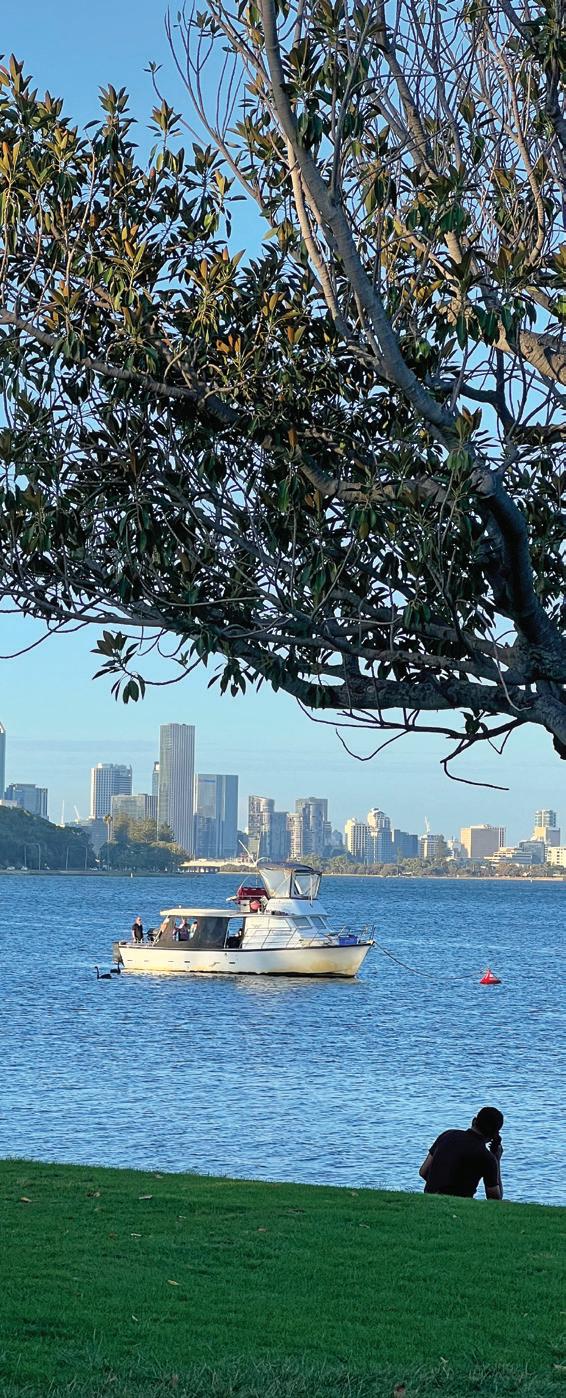
at Dalkeith Anglican Church, forging precious friendships with staff and students alike. Peter also serves as the Chair of GAFCON Australia.
Judith and her husband Tony moved to Geraldton in 1993, when Tony was elected Bishop of the Diocese of North West Australia. They served in that ministry until 2004, then joined the staff at St Lawrence’s Dalkeith alongside Peter Smith. Now in her early 80s, Judith still enjoys a teaching ministry to women across the state.
She says the most wide-reaching impact of Moore has been its emphasis on biblical theology. Those who were already working in Perth had been teaching the content of the Bible well, but Moore’s emphasis on how the whole Bible fits together—particularly how it points to Jesus—has been profound. She says, “It’s been my experience that in my study groups at St Lawrence’s and other places, people say, ‘Oh, now we know how it all fits together.’ The Bible is not something you simply ransack for illustrations about what God does; it actually gives you a whole understanding of God’s eternal purposes.”
David Seccombe graduated from Moore College in 1973.
Tim Thorburn graduated from Moore College in 2014.
Rory Shiner graduated from Moore College in 2005.
Peter Smith graduated from Moore College in 1993.
Judith has also seen Moore’s approach to the Bible percolate to the churches through Trinity Theological College: “Many of the staff are graduates of Moore, or they at least share Moore’s approach to biblical theology. I quickly discovered when I was teaching at Trinity Theological College that when I threw a question out, it was often the university Christian Union-trained students who had good biblical knowledge and a handle on Christian doctrine. That was due to the influence of Tim Thorburn and the student ministry at the university campuses.”
Through the hard work of people like David Seccombe, Tim Thorburn, Rory Shiner, Peter Smith, Judith Nichols, and other servants of the gospel, God’s word is being taught, evangelical churches are growing, and people are being sent out from there to other places. Praise God for the faith of his people in Perth! M M
*Thanks to the Commending and Contending podcast from The Gospel Coalition Australia, for the information on Tim Thorburn; 8th July 2024.
THE FAITHFUL FOUNDATION OF BIBLE BELIEVING AND TEACHING COMMUNITIES IN PERTH CONTINUES TO GROW AND STRENGTHEN. THIS YEAR ALONE HAS SEEN FIVE MOORE GRADUATES MOVE WEST TO SUPPORT THE CHURCHES. HERE ARE SOME STORIES OF WHAT IS HAPPENING ACROSS THE CITY TODAY.

Matt Smith / AFES Staff team leader at UWA Christian Union, Perth
After completing his studies at Moore College, Matt Smith moved to Perth with his wife, Bethany, to take up university ministry with AFES at the University of Western Australia (UWA). Although he originally imagined working in church ministry, Matt was drawn to the opportunity to partner with his wife in a ministry role and was compelled by a vision to serve in a less-resourced part of the country. His time at Moore gave him not only deep theological training but also a community where he learned to live out that theology with others. Now leading the Christian Union team at UWA, Matt is focused on training students to proclaim Christ and preparing the next generation of gospel workers.
Matt describes the gospel landscape in Perth as both challenging and hopeful. Many churches

and 2023.
are closing, and resources are stretched thin, but those that remain are growing, and student ministries are seeing signs of real spiritual growth. At UWA, students are increasingly engaged in evangelism, with initiatives like coldcontact outreach seeing lots of participation from students. Matt also shares that there is still a need for more gospel workers in Perth. M M
• That Matt would preach the gospel with clarity and conviction, that the Holy Spirit would change hearts
• For Godliness, that Matt and his team would remain true to Christ in their private and public lives
• That more people would come to know Christ as their Lord and Saviour
Ben Underwood / Rector, St Edmund’s Anglican Church, Wembley, Perth
The life of our church, St Edmund’s, goes on with its ups and downs. But there’s lots that encourages us.
Bible Study groups are a key part of our infrastructure, and this year, it has been great to see a new group start with new leaders. The existing young adults Bible Study group has grown as school leavers and others have joined it, with two new leaders expanding its leadership team.
Families are bringing their children to church again, so we have started a creche for the morning service.
We are also joining the Anglican Church of Australia’s Hope25 initiative to evangelise and share the hope of Jesus in our community. Our women have organised various events. Our men are onto this, too.
Please give thanks to God for these things and pray for us. M M
• Ask God to help the people of St Edmund’s to be united, energised and growing in Christ.
• Ask God to provide the church with good leadership at all levels.
• Ask God to bless St Edmund’s with opportunities to evangelise and the boldness of the Spirit to witness to others about the reality and power of Jesus in their lives.
SCAN THE QR CODES ON THE PAGE TO WATCH OR LISTEN TO THE 100 MINISTRY STORIES OF GRADUATES FROM ACROSS GENERATIONS.
Recently, I moved with my family from the East Coast to the “Left Coast” to work at Providence Church, Bayswater, in Western Australia. Since then, I have spent lots of hours in my new role, getting to know the people I serve and hearing how God has been faithfully at work in Perth for a very long time.
In some ways, Perth is not too different from “the East”: people have similar jobs, similar lifestyles, and similar hopes and dreams. However, every now and then, a little difference reminds me I’m in a new culture—one that I need to take the time to understand. People don’t wear “swimmers” or “cozzies”; they wear “bathers”. Girls wear “lackies”, not hair ties. And for some reason, there is a mind-boggling array of flavoured milks at the supermarket.
One interesting complexity for pastoral ministry has been working out how the FIFO (Fly In/Fly Out) lifestyle affects people in our congregation. The mining industry is big business in WA, and many people we serve either are FIFO or have someone in their family who works in the mining industry. This affects people’s work/life balance, as well as their availability. I’ve been learning a lot about
how to minister to people who don’t work the normal 9-5.
A beautiful feature of God’s kingdom here is the generosity and kindness shown across traditional denominational and theologicalinstitutional lines.
However, more than once, someone at Providence has told me how special and refreshing it is now to be part of a church where the Bible is taught with depth and clarity. This is something I had taken for granted, but it is, of course, not always the case. As parishioners express the importance of the Bible’s centrality, it is a wonderful reminder to me of the power of God’s word. M M

• Thank God for the power of his word to change people’s lives and equip them for godliness.
• Ask God to give Luke and Andrew and their team wisdom as they serve those with different work/life patterns.
• Ask God to grow his people in Perth in maturity and in number.
Perth wasn’t where I thought I’d end up. It’s not a fast-paced city like the ones I’d always been drawn to. It’s not where my deep relational connections lie; it’s pretty thin and isolated from them. It’s not a place where I feel like I fit in; even now, I still don’t quite get its culture.
However, Perth is the fastest-growing capital city in Australia. It has the highest relative net overseas migration than any other Australian capital city. People flow here from nations that do not know God. While the church scene is growing and there are lots of exciting things in the ecosystem, we’re not keeping up with the hordes of people arriving on our shores. We need more new churches to reach new people.
So although Perth was not my Plan A, the promised land that ticked all my boxes, I know I was not saved to serve myself. Christ is gathering his lost sheep from all nations, all tribes, all
peoples, all tongues, and that includes those wandering in Perth. I can have a role in that.
But Abi, Azariah and I are not the sole answer to this problem; Christ is. In him, we are taking one step towards finding more lost sheep. We stand on the shoulders of the giants who have gone before us, supported by many making the risky investment of faith in us. Providence Bayswater Church is training us with the aim of planting a church in 2027 or 2028. Many in Sydney are financially and prayerfully partnering with us. Without them, my job would not exist. In addition, an unknown angel investor in Perth donated money to train me, an unknown church planter, because the salvation of an unknown people is at stake.
We do not and will not have all the answers. But by faith, we trust that God will use weak people like us who are willing to say, “Here am I. Send me!” (Is 6:8) so that more would be found by him. M M

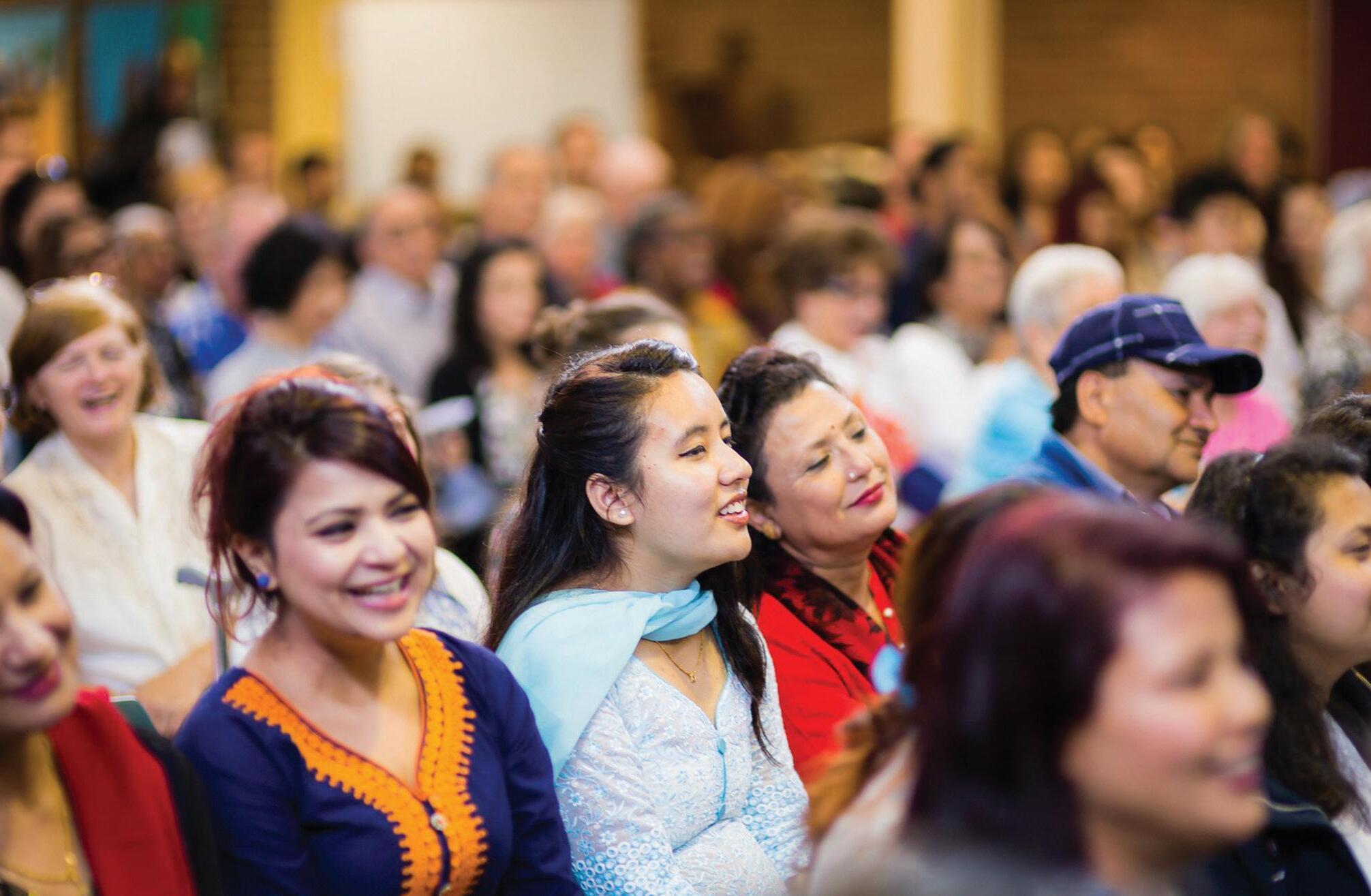
Stuart Pearson / St Luke’s Liverpool Ministry Team from 1996 - 2019
OVER THE YEARS, I HAVE WATCHED LIVERPOOL TRANSFORM INTO A COMMUNITY WITH GREATER ETHNIC DIVERSITY SO THAT IT IS NOW ONE OF THE MOST MULTICULTURAL REGIONS OF SYDNEY. AT THE SAME TIME, I HAVE WATCHED GOD GROW HIS CHURCH AT ST LUKE’S TO REFLECT SOMETHING OF THIS CITY.
In 1996, when I first arrived at St Luke’s as the new assistant minister, the church was predominately two Anglo congregations, with a couple of families from India and one from Malaysia. Towards the end of 1998 when I became acting rector, I decided that in order to reach the non-Anglo people in Liverpool, we needed to do some things differently.
I decided to simplify the services but still maintain some of our rich liturgical heritage, without requiring parishioners to pick up a prayer book. So I developed eight services that we rotated through every two months. These
services kept things like saying the Apostles and Nicene Creeds, and praying the general confessions and Lord’s prayer. But it was all contained on a single sheet of paper that attendees received when they came in, because I felt that books could feel threatening to someone who has English as a second language.
I also transformed my preaching. I shifted to application-driven preaching, removing exegetical points from my sermon and putting application points there instead. I also dropped almost all theological terminology: I avoided using words like “sanctification” or “sin”, but I did speak about these things using plain English. I stopped using “Australian” turns of phrase, because these would be unfamiliar to those who have English as a second language. I also used pictures during my sermon as these were helpful for visual learners, but I made sure that they contained non-Anglo faces.
I believe these changes to our public meetings prepared us well for what happened
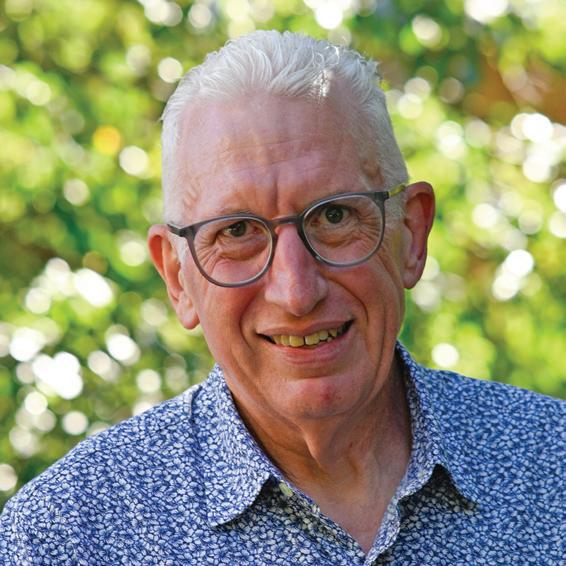
next. In late 2010, three Nepalese leaders— Rudra Paudel, Bishnu Khatri and Uttam GC— approached me with a request that I had never heard before: the Nepalese fellowship wanted to join our church. In the past, because of St Luke’s location in multicultural south-west Sydney, I had often been approached by many ethnospecific churches with the request to rent our site for their church meetings. I always declined. But this was the first group to indicate that they wanted to join with us.
The Nepalese leadership said that they had been embraced by the warmth and care of the St Luke’s leadership and many others, and that they truly felt welcomed. Our focus on the Bible and the love and care we provide to strangers was incredibly important to them.
“ DESPITE THE OBVIOUS CULTURAL DIFFERENCE BETWEEN THE NEPALESE FELLOWSHIP AND OUR ENGLISH-SPEAKING CONGREGATIONS, WE HAD A UNITY IN THE GOSPEL BASED ON GOD’S REVEALED WORD.”
I organised to meet with the Nepalese leadership to try and ascertain if there was significant theological alignment between St Luke’s, an evangelical Anglican church, and this small Nepalese fellowship that meet in Rudra’s house. I discovered that this fellowship had recently split from another church over the prosperity gospel, and that despite the obvious cultural difference between them and our English-speaking congregations, we had a unity in the gospel based on God’s revealed word that, I think, reassured both sides. So in November 2010, the Nepalese fellowship began meeting at St Luke’s on a trial basis.
One of the challenges for this church, from my perspective, was that it was a lay-led church. Its leadership had little formal theological
training. So I offered to run for them what is now the Preliminary Theological Certificate course, “Introduction to the Bible”. Over two terms, I tried to teach this course to godly Nepalese men and women who had English as a second language. It was a challenge both for them and for me, but they reassured me that the course clarified and deepened their trust in the Bible. Another challenge that I knew the Nepalese congregation would face is their children negotiating Nepalese and Australian culture. I had heard of other ethno-specific churches losing the second generation, so I deliberately encouraged the Nepalese to allow their children to join our Sunday morning children’s programs and Friday night youth program. 15 years later, it’s been my great joy to see older teenagers and young adults from the Nepalese congregation now serving in our children’s and youth ministry, and even attending our English-speaking congregations.
Nepalese fellowship at St Luke’s Liverpool
Nepalese congregation at St Luke’s combined celebration service
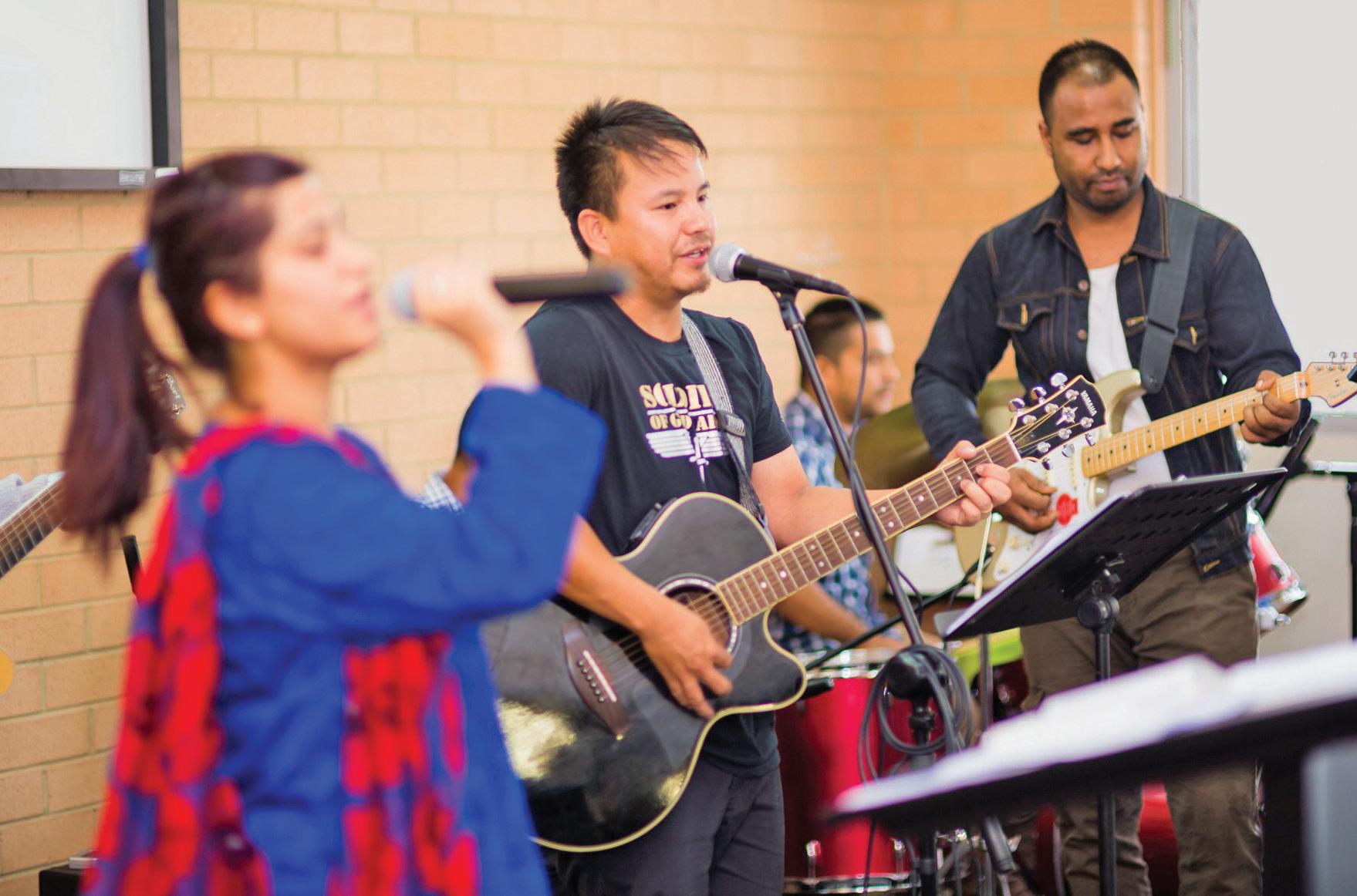

In 2019, Rudra and Bishnu invited me and my wife Julie to travel to Nepal with them to check out the work of INF (International Nepal Fellowship) in some of the non-tourist sites of Nepal. I also had the privilege of speaking at the wedding of two members of our Nepalese congregation, as well as meeting Nepal’s most highly regarded pastor, the late Robert Karthak, founder of Gyaneswor Church in Kathmandu. This trip with our Nepalese friends furthered my assurance that back in 2010, we did the right thing in joining together with our Nepalese brothers and sisters in Christ. During my time as senior minister, the Nepalese congregation became the fastest-growing congregation of St Luke’s, with 95 per cent of them becoming Christians after moving to Australia. They are evangelistically enterprising as they offer others the gospel of our Lord Jesus and something of Nepal here in south-west Sydney. May the Lord continue his good work! M M
• Thank God for the way he has been at work at St Luke’s over the years— particularly in bringing the Nepalese fellowship into the church.
• Ask God to continue to equip Tim Booker and the current ministry team at St Luke’s for the work he has prepared for them.
• Ask God to help Stuart to persevere in watching his life and doctrine closely so that when he goes and helps other ministers working alone in south-west Sydney by preaching in their churches, he will proclaim God’s word faithfully and clearly.

IT’S BEEN 25 YEARS SINCE I GRADUATED FROM MOORE COLLEGE, AND I’M STILL PROFOUNDLY GRATEFUL FOR THE BIBLICAL CLARITY, THEOLOGICAL DEPTH, AND GOSPEL CONFIDENCE THOSE FOUR YEARS GAVE ME. IN MANY WAYS, I LEFT MOORE WITH A BIG VIEW OF GOD. IT’S THAT BIG VIEW OF OUR BIG AND FAITHFUL GOD THAT HAS SUSTAINED ME FOR THE LAST 25 YEARS.
I“ IN A WORLD WHERE CHURCH ATTENDANCE IS SUPPOSEDLY DECLINING, WE ARE PRAYERFULLY WATCHING GOD BRING PEOPLE TO US. ”
’ve been at St Luke’s Anglican Church in Liverpool for just over three years now. It’s a region that’s wonderfully multicultural, socially complex, and spiritually open in ways that can be both exciting and exhausting. But through it all, God has been at work.
This year, on average, two new people have visited each of our four Sunday congregations every week. That’s over 400 visitors across the year. Most come from some sort of religious background, but we’re also seeing more and more people who have no religious background come to visit, because they’ve come to realise that there is more to life than chasing money and pleasure.
There is a definite increase in young men coming to faith in our area. I’m currently reading the Bible with two young men who have never opened the Bible in their lives. They are loving it, God is doing a deep work in them, and they’re not afraid to let people know about it. Some of these men are exploring Jesus for the first time; others are returning to faith after years away. In a world where church attendance is supposedly declining, we are prayerfully watching God bring people to us. But the challenge is enormous: how do we welcome them well, follow them up wisely and love them patiently into the kingdom?
God is faithful to his people and his word does his work. Our Nepalese congregation

continues to grow and is planting a new service in Leppington this year. God is raising up leaders from within that congregation and providing gospel workers with a heart for their people. We recently had ten Sydney Missionary and Bible College students spend a week with us doing outreach to Hindu households, and the fruit from that mission is still being seen. Our Community Chaplain, in partnership with Anglicare, connects weekly with those on the margins— people weighed down by fines, debt, poverty or loneliness—and brings them help and the hope of Jesus.
As our 205-year-old church building begins a massive $500,000 floor replacement project, I’m reminded yet again that the building is not the church; it’s the people. By God’s grace, our people are growing. They’re praying more, giving more, inviting more, getting bolder with the gospel, and saying “Yes” to serving, even when it’s costly.
Where do I see God at work in Liverpool? I see it in ways that only God could take credit for: in drawing the nations to himself; in turning tired Christians into disciple-makers; and in giving us daily grace to trust his promises and keep going. We’re still far from the church we long to be, but God is patiently shaping us, and that has been delightful to watch. God is slowly, but surely transforming us to look more like Jesus. M M
A RIPE HARVEST FROM THE LORD HAS BEEN ARRIVING ON OUR DOORSTEP HERE IN AUSTRALIA.
Asignificant portion of it includes a plethora of South Asian peoples, who speak different languages and dialects; who hold to varied religious and cultural practices; and who think about life, faith and culture through very different lenses.
Many of these people have come from countries where anti-conversion legislation and anti-Christian propaganda run deep. Governments and powerful religious organisations threaten the intrinsically proselytising nature of Jesus’ followers. Many have never had a deep and meaningful friendship with a Christian. Furthermore, mixed in with all this complexity is the deep-rooted family and community ties of a collective-mindset peoples, who, when it comes to conversion, carry a significant burden—a heartache that speaks to the very fabric of their cultural and familial identity.
To be sure, this has not stopped the bold preaching of the gospel in South Asian countries! However, this often means that those who do not follow Jesus come with negative preconceptions about his followers—about our doctrines, our political affiliations (e.g. India’s colonial history), our Western morality (e.g. debauchery of Hollywood), and so much more.
But our Lord is working powerfully in the hearts of the people he has brought here. Listen to the powerful testimonies of our South Asian brothers and sisters in Christ and you will discover how the Lord continues to call many from darkness to light. It fills me with joy to learn about the ways in which Jesus’ followers have been getting alongside their South Asian neighbours through messy discipleship—the faithful preaching of his word, hours of vulnerable and
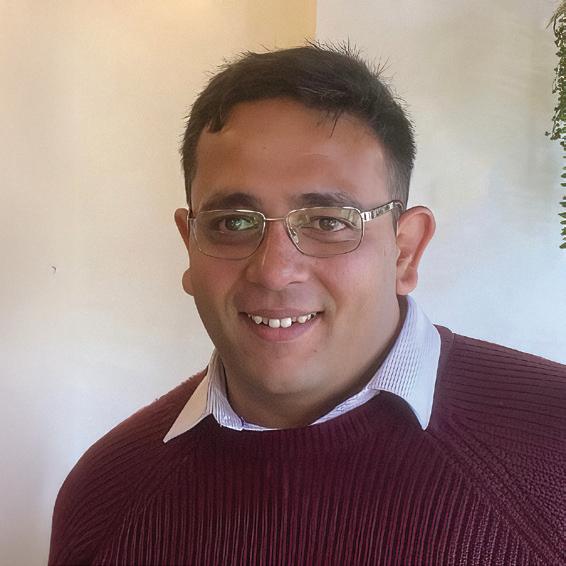
“
LISTEN TO THE POWERFUL TESTIMONIES OF OUR SOUTH ASIAN BROTHERS AND SISTERS IN CHRIST AND YOU WILL DISCOVER HOW THE LORD CONTINUES TO CALL MANY FROM DARKNESS TO LIGHT.
generous hospitality, and the intertwining of the highs and lows of life. Many are putting their trust in Jesus for eternal life and are being strengthened as they navigate the complexity of what it means to submit to Jesus as King over every aspect of their lives—family expectations, cultural practices, hierarchical obligations, and so on.
Here’s one small example: recently my church started a Meeting Jesus course that aims to help curious explorers of the gospel meet Jesus in the pages of the Bible. 15 people from different cultural backgrounds attended—Muslims, Hindus, atheists, agnostics, practitioners of ancestral worship and those from a cultural church background. As I taught from Mark 2-3 and people held discussions in small groups, Ming (a third year student Moore College) student translated it into Mandarin, and Gordon (Moore College graduate and retired CMS missionary to Nepal) translated it into Nepali.
Our Lord truly is gathering those from every tribe, tongue, and nation in a glorious display of his love—and all to the praise of his glory (cf. Rev 7:9-10)! M M
If you would like to think more about reaching South and East Asians for Jesus, come to the One For All conference on 23 August 2025: www.oneforallconference.online. (Keynote speaker: Archbishop Kanishka Raffel.)
• Thank God for the people he has brought to Australia from South Asian countries. Ask him to grant them repentance and faith in the Lord Jesus.
• Ask God to raise up more workers for his harvest field willing to practise messy discipleship.
* A South Asian Tide for Yesu in Sydney and Australia
• Thank God for the gospel ministry of the SATYA Committee (previously known as the Subcontinental Ministry Fellowship and the Subbies Executive Committee) and pray for the upcoming One For All conference.
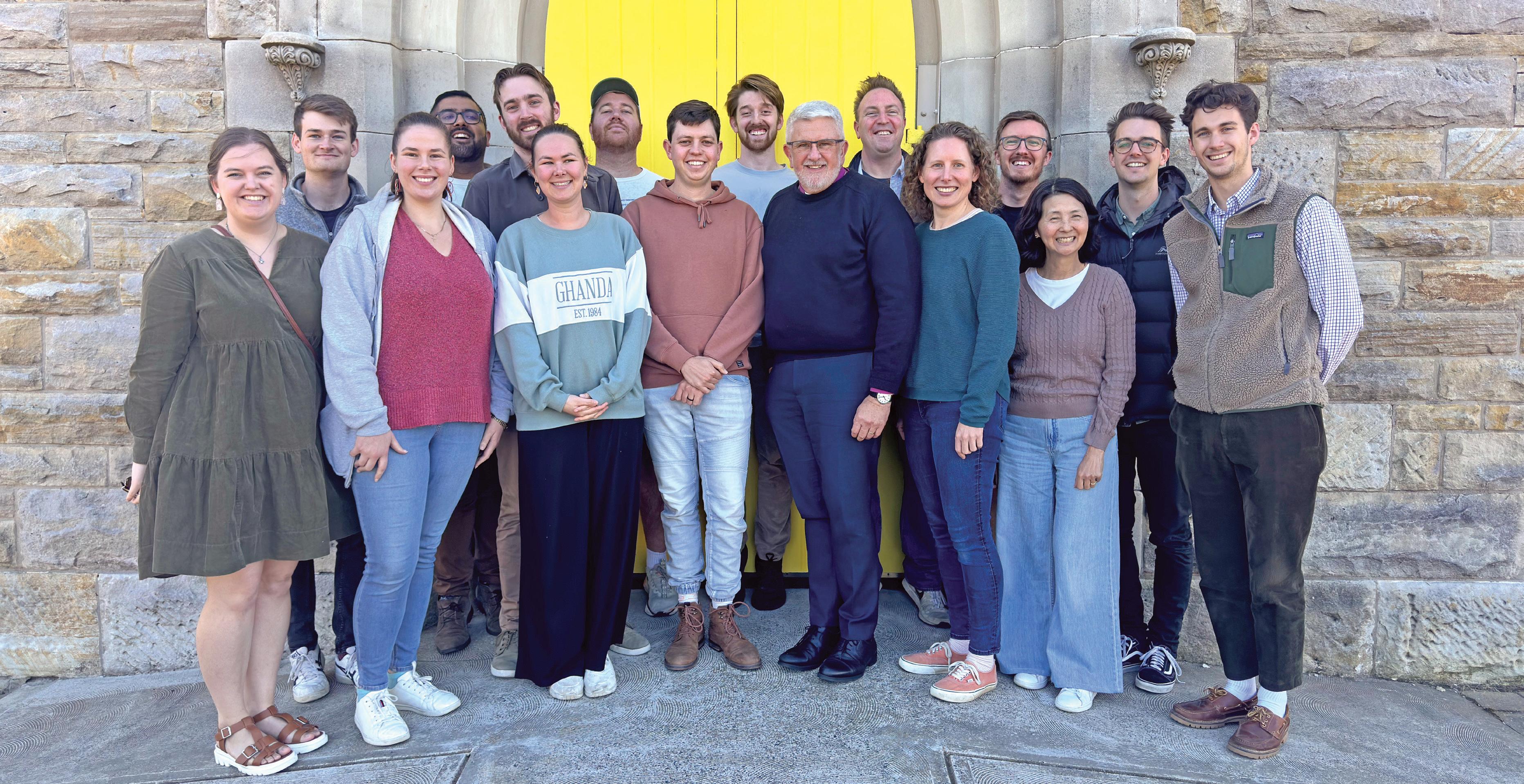
BE
1 PETER 5:2A
Ilove sheep. I know that is not a popular confession, but it is true. As a child it was my dream to live a farm life, especially looking after livestock. The smaller ones had the most appeal – maybe because they seemed safer. You are less likely to sustain an injury as a result of a sheep stepping on your toe than if a heifer decided to get too close!
Years later I had the opportunity of caring for a flock of sheep on a property in the Riverina, south-western NSW. Being a shepherd of poddy lambs, who are essentially orphans, gave some insight into what it means to care for a flock of helpless creatures.
I remember needing to come home early to feed the sheep, or get up in pitch darkness, in bracing, teeth-chattering cold, stumbling out to the shed with milk bottles only to be welcomed by pitiful, yet hopeful, bleats of these hungry orphans.
During these feeding sessions and the farm walks that followed it became evident that a shepherd doesn’t just look after sheep, the shepherd and the sheep develop a relationship, a strong bond. The shepherd cares for and loves his sheep and the sheep change from fleeing from him to trusting and following him. The shepherd sacrifices much to care for them.
It is a labour of love and sacrifice.
When Peter is encouraging the elders, those
who are wise and mature in Christ’s church, to shepherd God’s flock, he is encouraging them to lead, feed, care and serve Christ’s family.
At Moore College, students today are getting equipped for just that role – to shepherd God’s people, to point them to Christ, our Good Shepherd, to nurture them and build them up with God’s word, to know and love each one in their care, encouraging them so they may be strengthened in the faith they have been taught.
That is why Moore College is focussed on drawing deep theological study together with learning in community. And why modelling pastoral care and preparing students to be pastoral carers of others is a core part of full-time study at College.
Men and women are preparing to be shepherds of God’s flock.
Learning to lead, feed and serve Christ’s family requires wise, mature and reflective leaders. The curriculum and community-based structures at College continue to reinforce the critical importance of pastoral care. Whether it is inperson learning where students are sharpening one another through study groups, reading groups and deep discussions, or tutoring and mentoring programs which contribute to a culture of learning and discipleship, learning to live with and care for others in a community is paramount.
Key to this pastoral care core are Chaplaincy Groups – small groups of men and women
from across year groups who meet weekly with a Faculty member and a co-Chaplain.
Jocelyn Loane, Chaplain with the College over the last 5 years, reflects on the key benefits of Chaplaincy Groups:
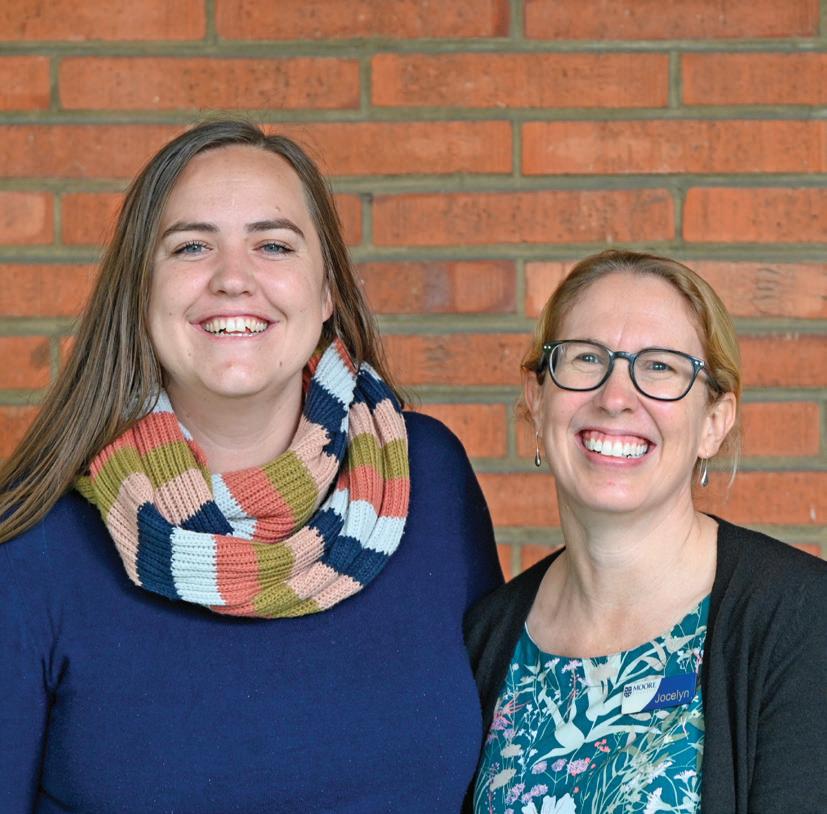
“One of the things I love about Moore and I think is a real distinctive of a theological education here, is that you are really known and loved by the Faculty and Chaplains. I meet with the women in my group one on one to chat through what they’re thinking about ministry, what they’re learning and I pray with them. I have built some beautiful friendships over the years with these women, many of whom I’m still in regular contact with.”
“Ministry is inherently relational, so alongside studying God’s word and being equipped to teach it well, we want our graduates to be people who relate well to others and know how to live well in relationship with others and love them well.”
James Chen, reflecting on his 4 years in Chaplaincy Groups explains that students at Moore are “growing and caring in community because learning doesn’t just happen top down, it happens side to side, and caring doesn’t just happen top down, it happens side to side as well, so Chaplaincy Groups are a big part of that.”
“I recognise that our Faculty are first and foremost pastors and then teachers and then scholars. They really see that as part of their role.”
“I love that we have other chaplains that come in and help us with their ministry experience, with their pastoral insights, and that they guide us as we help each other care for one another as well.”
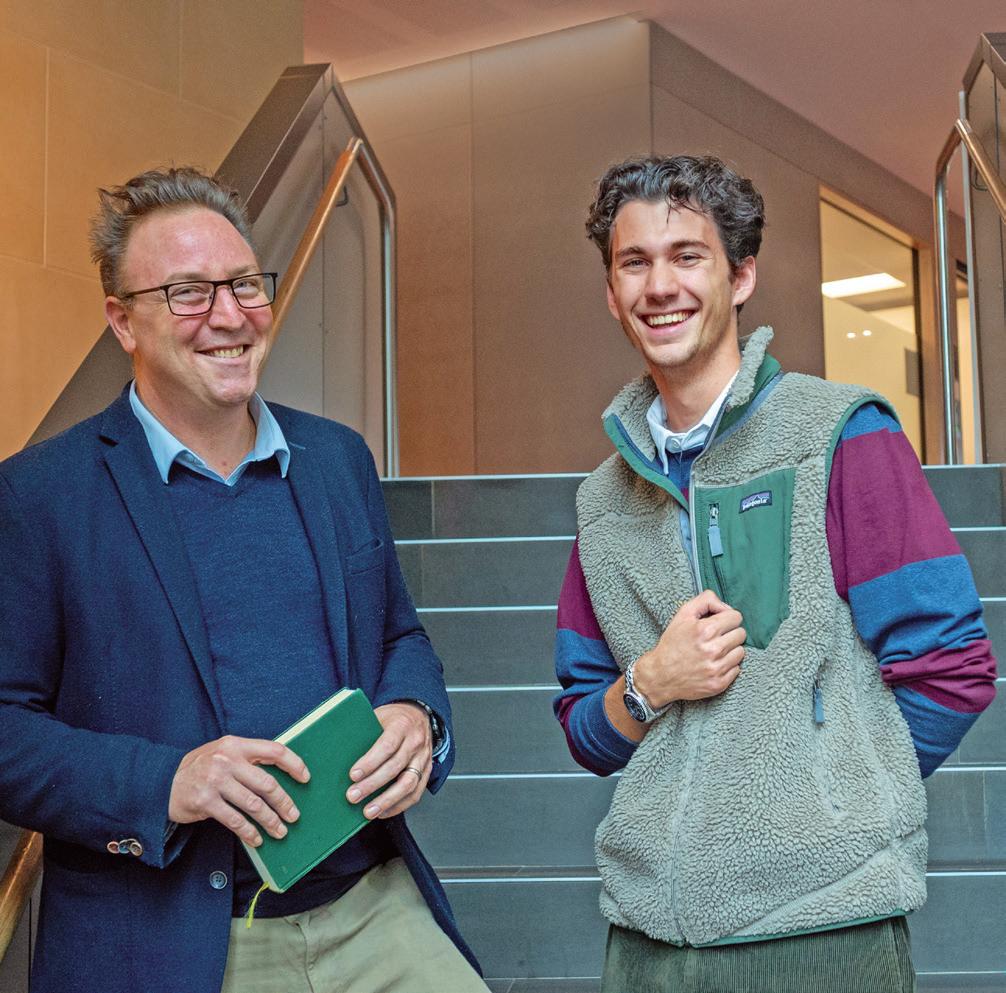
One of the core parts of Chaplaincy Groups is spending 9 days on mission together, giving students time to deeply connect with each other, their Faculty member and their Chaplain.
As Second Year student Ben explains, “The special time going on mission offers some of the biggest benefits of learning and living in community, working and living with peers, especially from the upper years, help you make sense of things on mission, at College and also ministry.”
Post mission discussion is also a highlight. Steph, now in her third year, shares “Mission itself generates all kinds
of ideas, food for thought about what ministry looks like, then as a team you get to discuss not just abstract ideas but you’ve actually had experiences of seeing church or Christian communities work in unexpected ways. It’s been really good to be humbled by seeing the ways God uses different people to work in different ways.”
Mission in Chaplaincy Groups is one of a myriad of ways Moore students are being transformed into shepherds, preparing to care and watch over God’s flock.
Will you help us to raise up shepherds to lead, feed and care for God’s family?
Can you contribute financially to this vital programme of cohort based residential theological education?
Preparing students through effective pastoral care models, in communitybased accommodation, alongside excellent theological education is resource intensive, but vital if the next generation in ministry are to effectively love and shepherd God’s people.

The message of salvation through Jesus is so important and God’s family is precious. Each lamb, every hopeful and hungry creature.
Please give to the College this end of financial year. Please give by 30th June. M M
You can help us to provide community-based theological education, foster pastoral care skills, and maintain a learning environment grounded in biblical truth. Such transformative education is resource intensive. But it is vital and has given us generations of faithful shepherds.
That is why your prayerful and financial support is so important.
Will you give generously to the Moore College End of Financial Year Appeal?
Thank you for your continuing partnership in this life-changing mission.
Give today.
give.moore.edu.au
MooreID
Title Given Name
Family Name Address
City
Phone Email
Yes, I want to prepare gospel workers by giving:
$1200 $600 $120 $60
Other $
Once Monthly
to prepare men and women to proclaim the gospel of Jesus Christ in Sydney, Australia and across the world.
I would like to make my gift by:
Cheque (payable to Moore Theological College)
Direct Deposit (contact us*)

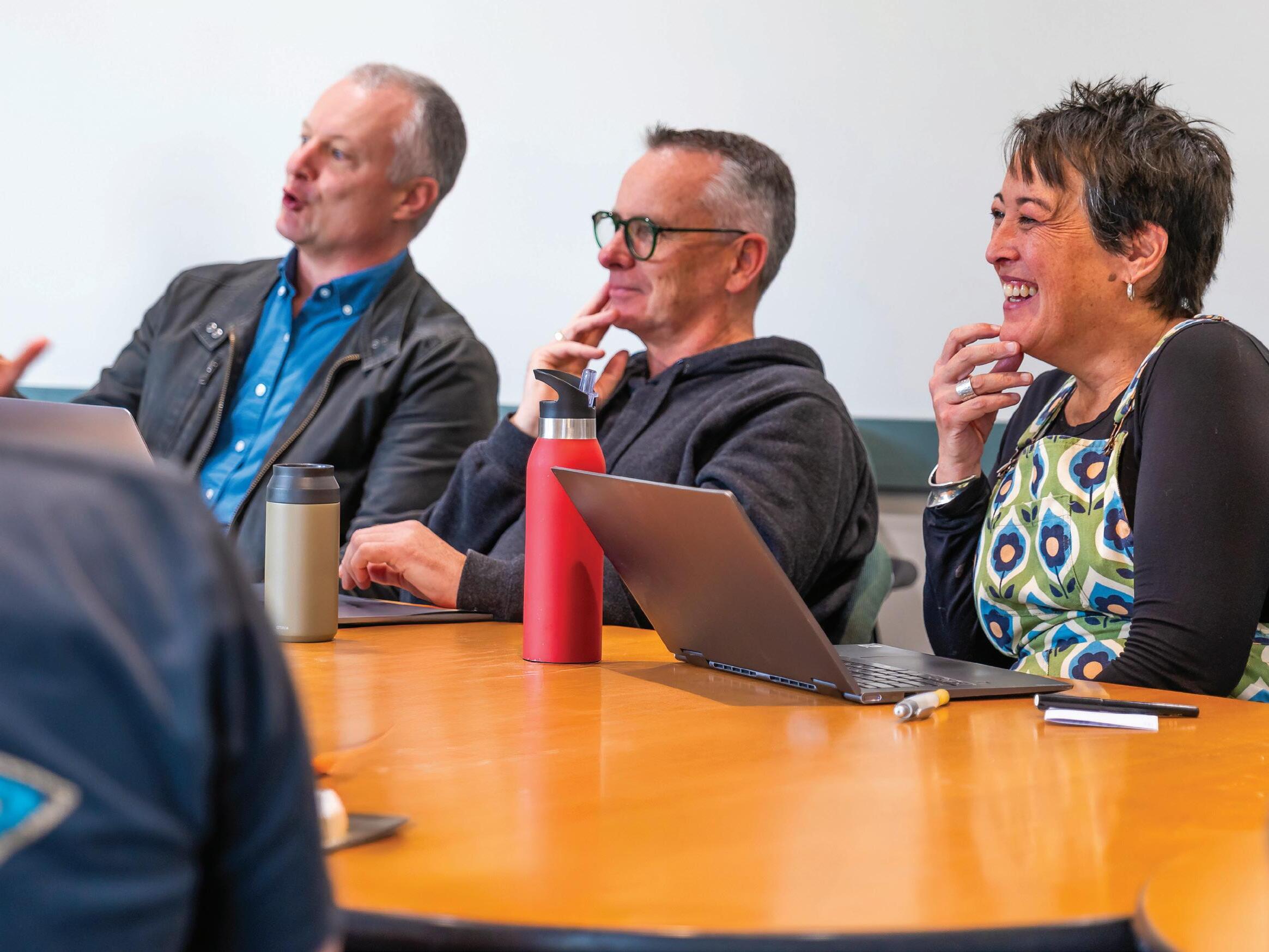
Let us help you in the practice of vocational ministry
Units include:
• Pastoral Supervision
• Resilience Enhancement and Overcoming Trauma
• Ministry Mastery
Key Points:
• Theological foundations for the practise of vocational ministry
• Flexible, intensive delivery of four units of study
• Focuses on enhancing your ministry
Enquire today about registering for the Pastoral Supervision module scheduled for 31 July and 1 August 2025.